Mission
The Mitchell Institute for Aerospace Studies is an independent, nonpartisan research organization established to provide fact-based policy options that better empower our nation’s leaders by:
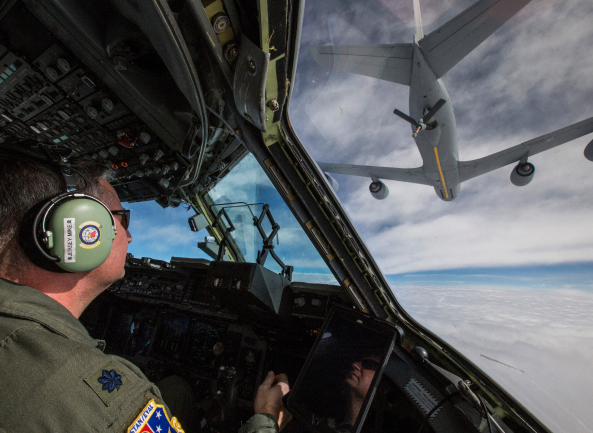
Informing
the national security debate
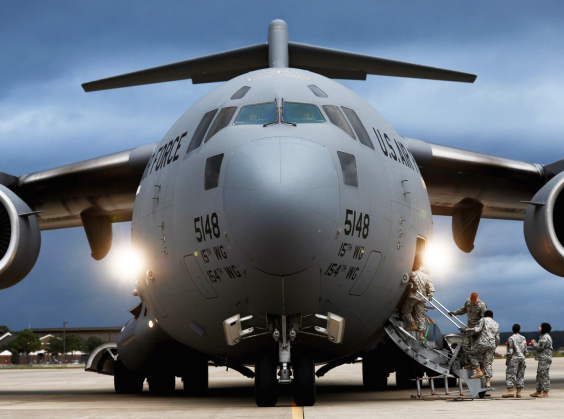
Educating
about the essential role of aerospace power in securing America’s global interests
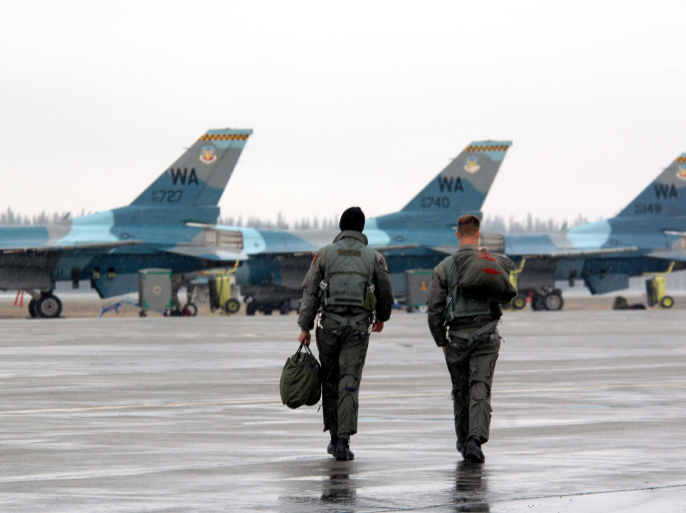
Cultivating
aerospace-minded talent
This involves questioning established doctrine, organizational constructs, and operational concepts, asking whether there are better ways to meet national security goals. The Mitchell Institute provides independent analysis based on science, history, and data outlining the right solutions in the aerospace domain.
“The role of airpower is not only to fight and win wars if necessary, but to influence the behavior of other nations by actions short of war in support of national policy.” – Gen Laurence Kuter, USAF, Former Commander of NORAD
The Legacy of Billy Mitchell:
Staff
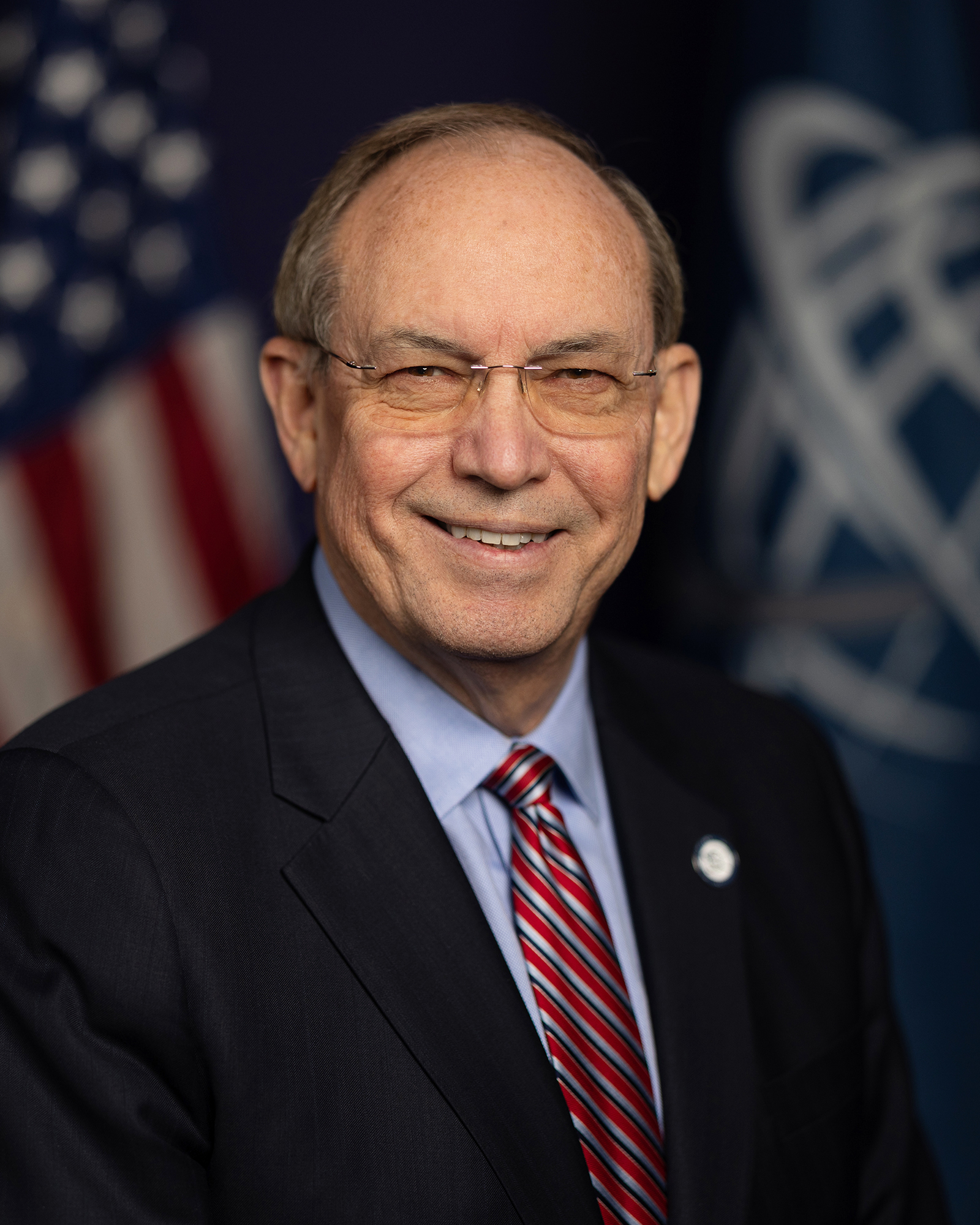
Lt Gen David A. Deptula, USAF (Ret.)
Background: Gen Deptula is the world’s foremost expert on military aerospace issues. He is a pioneer in conceptualizing, planning, and executing national security operations from humanitarian relief to major combat.
Lt Gen David A. Deptula, USAF (Ret.), serves as the Dean of the Mitchell Institute, PenFed Chair for Aerospace Studies, and Scholar at the U.S. Air Force Academy Center for Character and Leadership Development.
Background: Gen Deptula is the world’s foremost expert on military aerospace issues. He is a pioneer in conceptualizing, planning, and executing national security operations from humanitarian relief to major combat. Featured in the book Airpower Pioneers: From Billy Mitchell to Dave Deptula, he accomplished several “firsts” in the command of joint forces, planning and execution of aerospace power, intelligence, surveillance, and reconnaissance (ISR), and improved international relationships. He was the principal attack planner for the Operation Desert Storm air campaign; commander of no-fly-zone operations over Iraq in the late 1990s; director of the air campaign over Afghanistan in 2001; twice a joint task force commander; and was the air commander for the 2005 South Asia tsunami relief operations. He served on two congressional commissions charged with outlining America’s future defense posture. He is a fighter pilot with more than 3,000 flying hours—400 in combat—including multiple command assignments in the F-15. His last assignment was as the Air Force’s first chief of intelligence, surveillance, and reconnaissance (ISR), where he transformed America’s military ISR and drone enterprises, orchestrating the largest increase in drone operations in Air Force history. He retired from the Air Force in 2010 after more than 34 years of distinguished service.
Areas of focus: Gen Deptula is a recognized expert and sought-after commentator around the world as a thought leader on aerospace operations, defense, and strategy. He has received numerous awards to include the Air Force Association’s highest honor in the field of national security, the H.H. Arnold Award, the Air Force Historical Foundation Spaatz Award for lifetime achievement in shaping Air Force history, and Defense News named him one of the 100 most influential people in U.S. defense. His recent works include: Air Force and Space Force Vectors for the Incoming Trump Defense Team; The Significance of Air Superiority: The Ukraine-Russia War; America needs to modernize its Air Force now—or be prepared to lose; Why America Needs The Next Generation Air Dominance Combat Aircraft; The Force We Need: Key Factors for Shaping the Air Force for the Future, among many others.
Academic and Professional Titles: Gen Deptula has BA and ME degrees from the University of Virginia where he was a distinguished graduate from Air Force ROTC. He is a graduate of the Air Force Fighter Weapons School (81DIN), Air Command and Staff College, and the Armed Forces Staff College. He also holds a M.S. in National Security Strategy from the National War College. In addition to his duties as Dean of the Mitchell Institute, holder of the PenFed Chair for Aerospace Studies, and the Risner Senior Military Scholar at the U.S. Air Force Academy Center for Character and Leadership Development. He is also a board member at a variety of institutions; an independent consultant; and a world-wide commentator on military strategy and related issues.

Gen Kevin P. Chilton, USAF (Ret.)
Background: Retiring in 2011, General Chilton served for 34 1/2 years in the Air Force, most recently holding the title of Commander of U.S. Strategic Command from 2007 to 2011.
Gen Kevin P. Chilton, USAF (Ret.) is the Explorer Chair at the Mitchell Institute for Aerospace Studies Spacepower Advantage Center of Excellence (MI-SPACE).
Background: Retiring in 2011, General Chilton served for 34 1/2 years in the Air Force, most recently holding the title of Commander of U.S. Strategic Command from 2007 to 2011. General Chilton has commanded at the wing, numbered air force, major command and unified combatant command levels including serving as Commander of Air Force Space Command. He flew operational assignments in both the R-4C and F-15, and as an Air Force test pilot, conducting weapons tests in various models of the F-4 and F-15. His career includes serving 11 years as a NASA astronaut, where he flew as the Commander of STS-76, his third Space Shuttle mission, and served as the Deputy Program Manager for Operations for the International Space Station Program. General Chilton was awarded an honorary Doctor of Laws from Creighton University, was a Columbia University Guggenheim Fellow earning a Master of Sciences degree in mechanical engineering, and is a distinguished graduate of the U.S. Air Force pilot training and test pilot schools as well as a distinguished graduate of the U.S. Air Force Academy with a Bachelor of Sciences degree in engineering sciences.
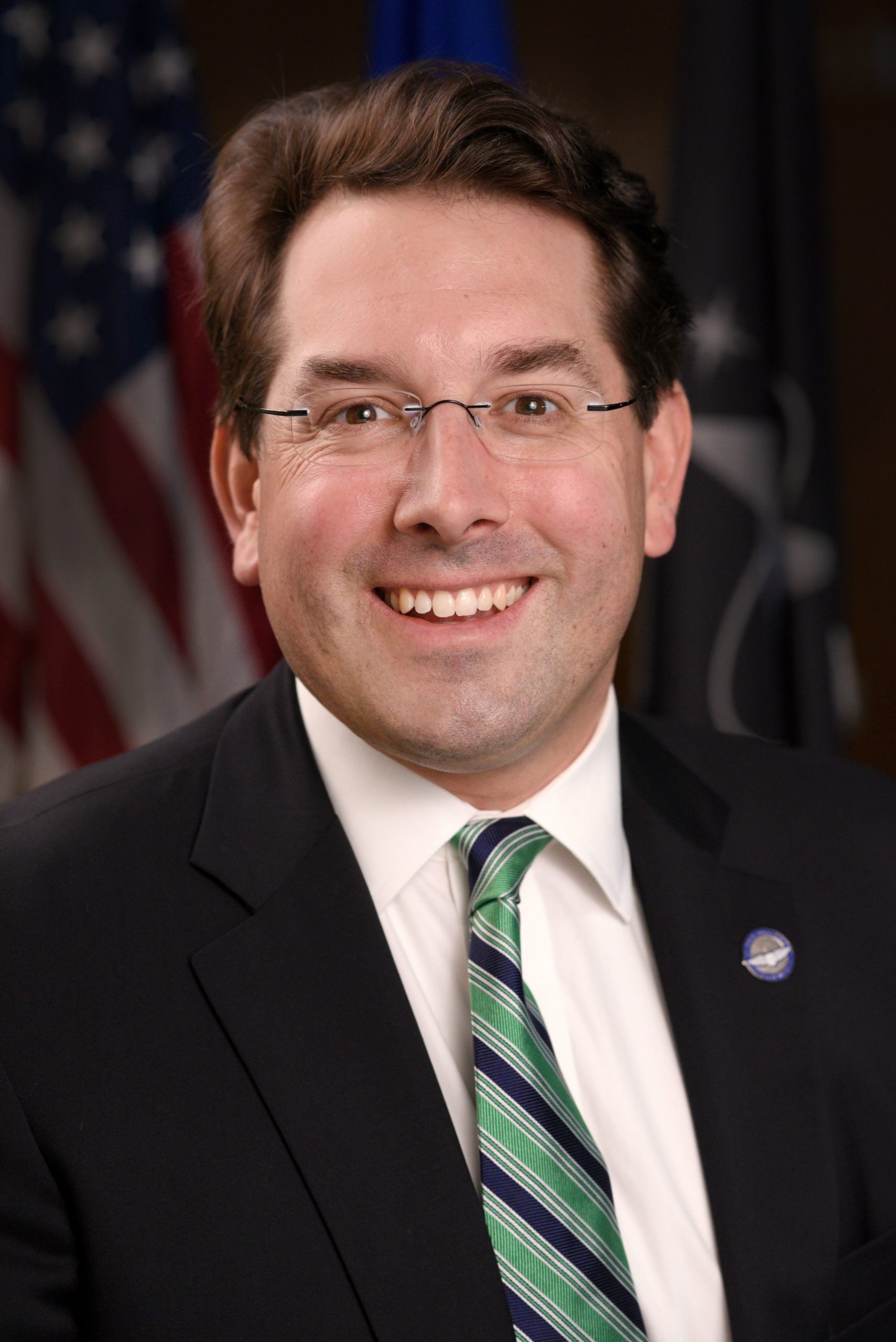
Doug Birkey
Background: As Executive Director, Mr. Birkey guides the research agenda and stakeholder strategy for Mitchell Institute.
Douglas A. Birkey is the Executive Director for the Mitchell Institute for Aerospace Studies.
Background: As Executive Director, Mr. Birkey guides the research agenda and stakeholder strategy for Mitchell Institute. He also executes research projects, hosts aerospace forums, shapes public programming, and engages leaders in Congress, the Department of Defense, as well as the broader policy and budget community. He is a routine contributor to the defense dialogue, with a regular presence in a range of publications ranging from the Washington Post and Financial Times to Defense News and Aviation Week. Prior to this position, Birkey served as the Air Force Association’s Director of Government Relations. He was responsible for developing strategies to advance aerospace policy positions with Members of Congress, their staffs, officials within the Air Force, and the broader defense industry. Birkey was also the cofounder of the Washington, DC Airpower Working Group, which afforded the foundation from which Mitchell Institute was launched. Birkey began his Washington, DC career as a defense staffer in the office of Senator Lieberman (D-CT), assisting the Senator with his duties on the Senate Armed Services Committee.
Areas of focus: Air Force modernization, defense policy and budget decisions, airpower strategy, aerospace power history, and congressional defense issues.
Academic and professional titles: He received his undergraduate degree from the College of Wooster, majoring in history, and was awarded a graduate degree from Georgetown University. He is also active in the restoration and operation of vintage aircraft for several private organizations.
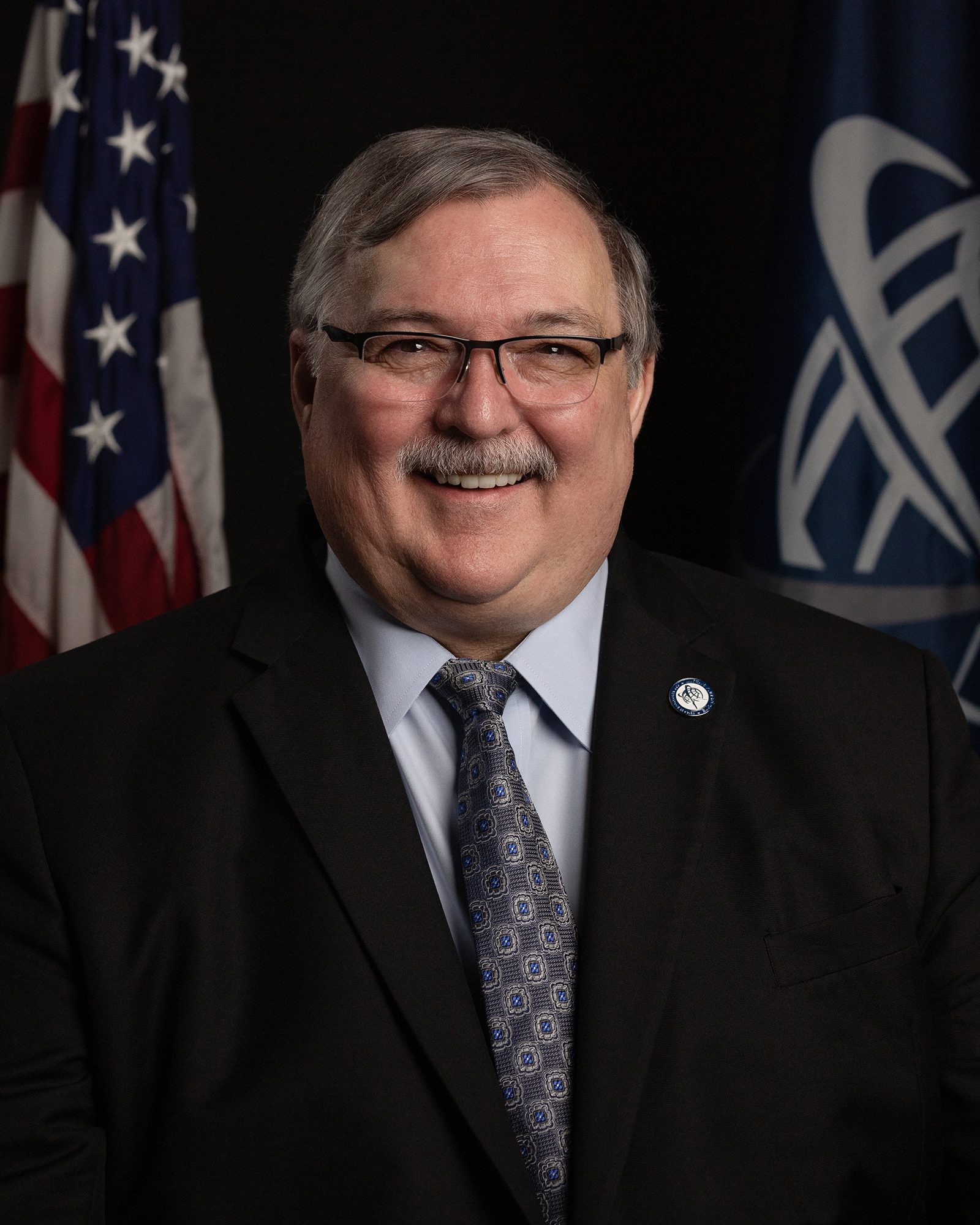
Mark Gunzinger
Background: USAF Col (Ret.) Gunzinger was a command pilot with more than 3,000 hours in the B-52.
Mark Gunzinger serves as the Director of Future Concepts and Capability Assessments for the Mitchell Institute for Aerospace Studies
Background: USAF Col (Ret.) Gunzinger was a command pilot with more than 3,000 hours in the B-52. As a member of the Air Staff during the 1990s, he conducted research on behalf of the Air Force Chief of Staff and Secretary of the Air Force on future warfighting operational concepts. In the late 1990s, he was a co-author of DoD’s first transformation strategy that prioritized the development of new technologies to sustain the U.S. military’s ability to project power into contested areas. As Director for Defense Transformation, Force Planning and Resources on the National Security Council staff, The White House, Mr. Gunzinger co-led the development of strategic plans focused on offsetting emerging anti-access and area-denial (A2/AD) challenges in the Western Pacific. He was then appointed Deputy Assistant Secretary of Defense for Forces Transformation and Resources with oversight of DoD’s conventional capabilities. Acting as project leader for government-sponsored wargames that examined the challenges of emerging A2/AD threats in the Persian Gulf region, he developed elements of a new operational concept for U.S. military operations, which informed the development of DoD’s Air-Sea Battle concept.
Areas of focus: Mr. Gunzinger’s recent studies have focused on future directed energy capabilities, such as ship-based lasers and high-power microwave weapons, operational concepts and technologies needed to maintain the U.S. military’s dominance in the electromagnetic spectrum, and capabilities to create new advantages in precision strike salvo competitions with China and Russia. He has led multiple U.S. and international wargames and workshops to assess future concepts and systems-of-systems for joint and combined military operations in contested environments.
Academic and professional titles: Mr. Gunzinger has an MS in National Security Strategy degree from the National War College, a Master of Airpower Art and Science degree from the School of Advanced Air and Space Studies, a Master of Public Administration from Central Michigan University, and a BS in Chemistry from the U.S. Air Force Academy. He is the recipient of the Department of Defense Distinguished Civilian Service Medal, the Secretary of Defense Medal for Outstanding Public Service, the Defense Superior Service Medal, and the Legion of Merit Medal.
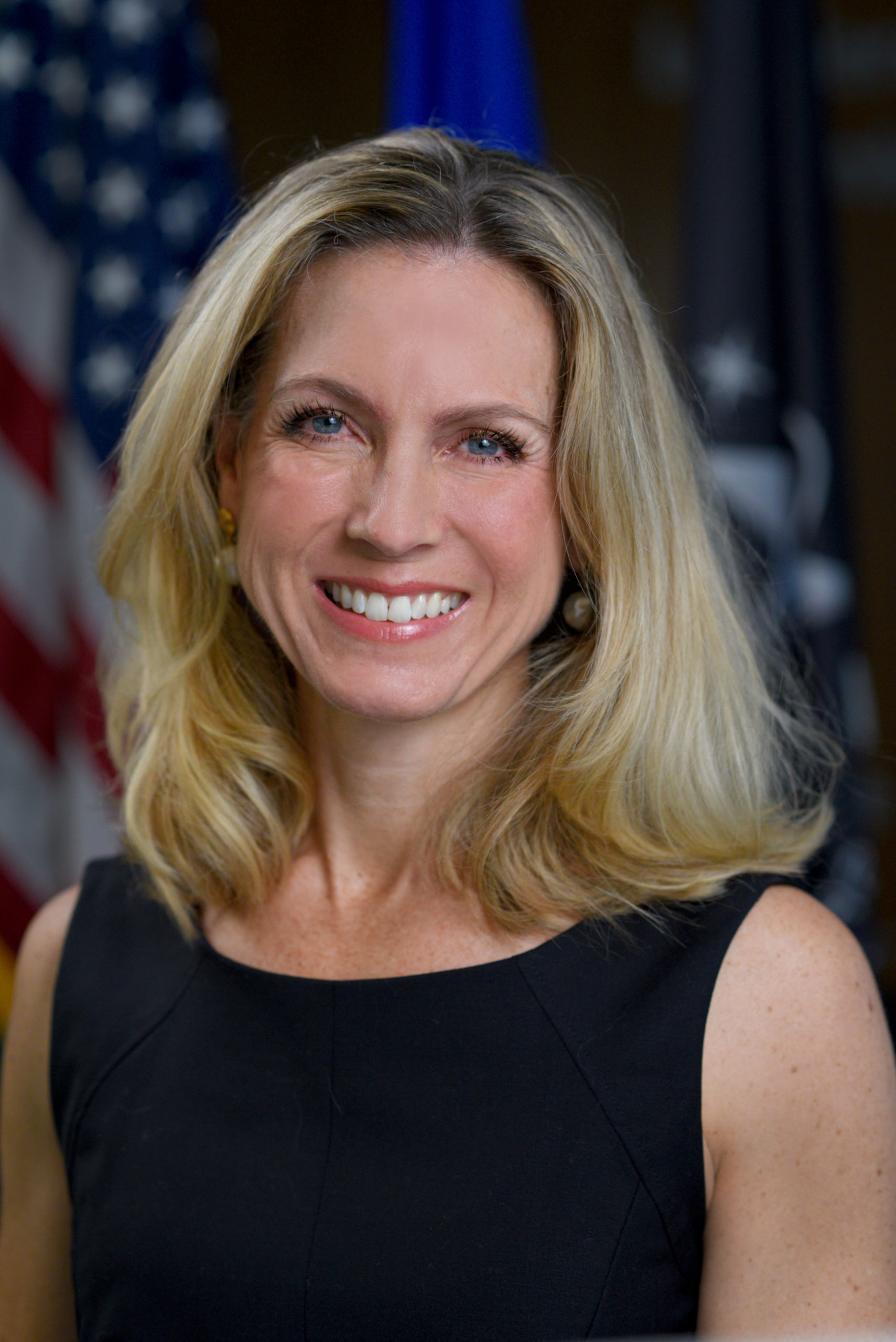
Heather Penney
Background: Prior to joining Mitchell, Penney worked over a decade in the defense industry focusing on defense budgets, supporting program execution, and capturing campaign management.
Heather Penney is the Director of Studies and Research at the Mitchell Institute for Aerospace Studies. She conducts extensive research on cutting-edge defense policy with a focus on the leveraging the critical advantage that only aerospace power affords.
Background: Prior to joining Mitchell, Penney worked over a decade in the defense industry focusing on defense budgets, supporting program execution, and capturing campaign management. She served in the Washington, DC Air National Guard flying F-16s and G-100s; she has also served in the Air Force Reserve in the National Military Command Center. She has also lectured extensively on subjects such as Air Force capabilities and force structure, organizational command and control, reforming the defense personnel system, and other defense policy issues to a broad number of organizations, universities, and military institutions.
Areas of focus: She’s a recognized expert on defense policy issues concerning data rights, unmanned systems, software maintenance and operations, autonomy, and force structure considerations. Penney is established voice on Mosaic warfare, JADC2, and future operational concepts associated with information architectures.
Academic and professional titles: Penney received her undergraduate degree from Purdue University, majoring in English with a minor in Philosophy. She earned her MA in American Studies from Purdue University. She earned her wings at Euro-NATO Joint Jet Pilot Training (ENJJPT) at Sheppard AFB, and qualified in the F-16C at the 149th FTW at Kelly ANGB. She has successfully completed numerous industry executive leadership courses and holds multiple aviation certifications.
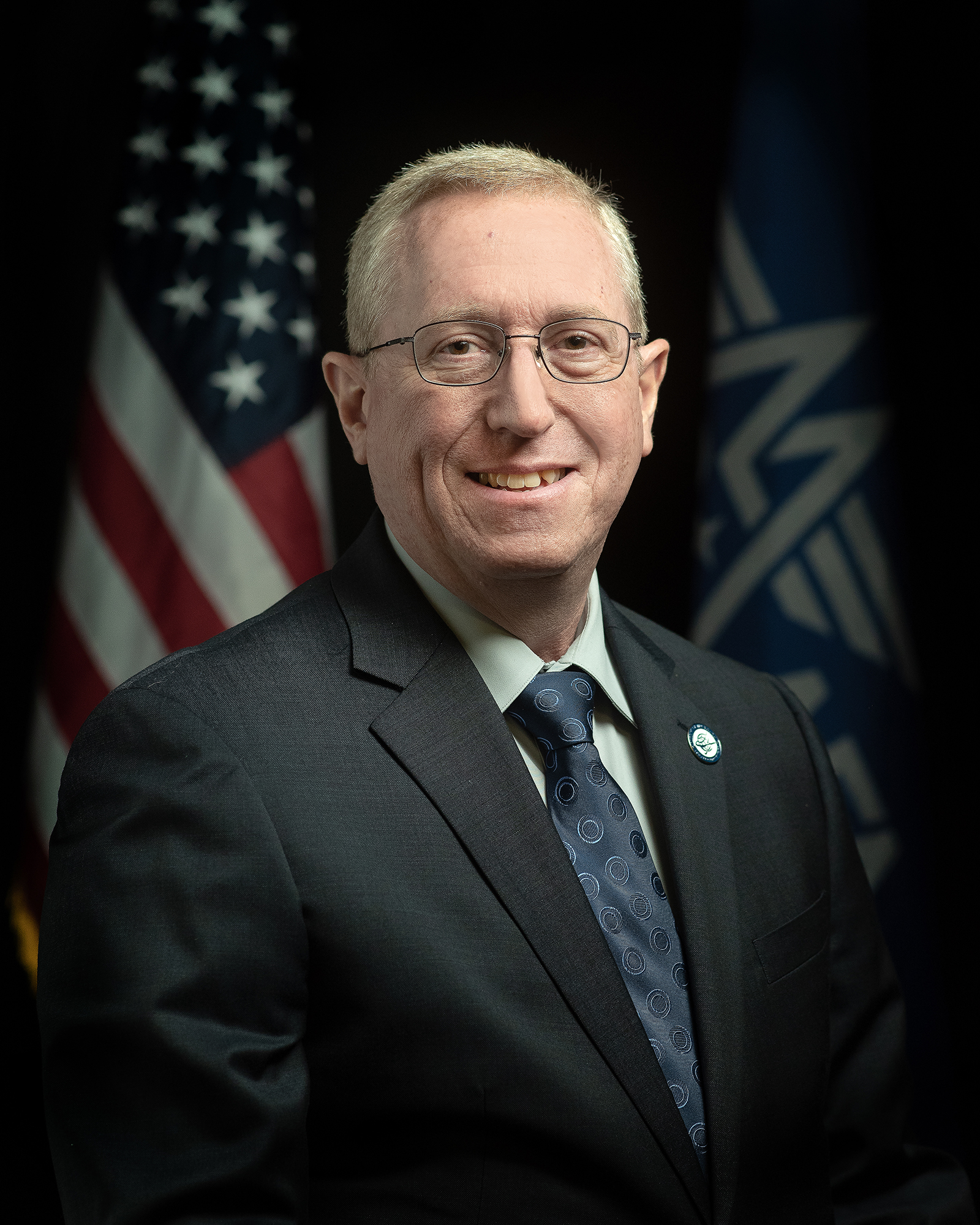
Charles Galbreath
Background: Charles is a retired United States Space Force Colonel; a Command Space Operator with expertise in Missile Warning, Space Control, Space Launch, and ICBM operations; and a Senior Materiel Leader with experience developing advanced technology demonstration and prototype systems.
Charles Galbreath is a Senior Resident Fellow for Space Studies at the Mitchell Institute’s Spacepower Advantage Center of Excellence (MI-SPACE).
Background: Charles is a retired United States Space Force Colonel; a Command Space Operator with expertise in Missile Warning, Space Control, Space Launch, and ICBM operations; and a Senior Materiel Leader with experience developing advanced technology demonstration and prototype systems. Prior to joining Mitchell, Charles served as the Deputy Chief Technology and Innovation Officer on the Headquarters United Space Force staff. Throughout his military career, Charles served in a variety of space operation, acquisition, test, and staff positions, including Deputy Chief Technology and Innovation Officer, Deputy Director for Innovation and Prototyping, Deputy Director for Strategy and Plans in OSD Space Policy, Deputy Commander for the 30th Launch Group, Squadron Commander for Missile Defense Agency’s demonstration satellites, and program manager for advanced space control capabilities. He also deployed to Afghanistan as the Space Liaison to Headquarters, International Security Assistance Force. In addition, he was an Air Force Fellow to the RAND Corporation.
Areas of focus: He’s an established voice on space operations, acquisitions, and policy with a focus on space control, advanced technology, acquisitions, and digital transformation. In addition, he will provide a research focus on spacepower strategies and policies for MI-SPACE.
Academic and professional titles: Charles received his undergraduate degree from Northrop University, majoring in Aerospace Engineering. He also earned a Masters of Administrative Science from the University of Montana, a Masters Degree in Space Operations from the Air Force Institute of Technology, and a Master of Military and Operational Art and Sciences from Air University as part of Air Command and Staff College where he was a Distinguished Graduate and won the Space Research Award.

Jennifer Reeves
Background: Jen is a retired United States Air Force Colonel with almost 29 years of active duty, finishing her career as the Chief of the Air Force’s Engine Room, leading the service’s Program Objective Memorandum (POM) build. Immediately prior to joining Mitchell, Reeves worked for a non-traditional government contractor focusing on creating purpose-built software applications to assist in decision making in the POM build process.
Jennifer K. Reeves is a Senior Resident Fellow for Space Studies at the Mitchell Institute’s Spacepower Advantage Center of Excellence.
Background: Jen is a retired United States Air Force Colonel with almost 29 years of active duty, finishing her career as the Chief of the Air Force’s Engine Room, leading the service’s Program Objective Memorandum (POM) build. She commanded the 341st Missile Wing at Malmstrom Air Force Base, leading a 4,000-person team comprising all operational, security, business operations, administrative, and civic engagement activity. Before that, Reeves commanded the 381st Training Group at Vandenberg Air Force Base, where she developed a pipeline of 250 students annually to meet the needs of the space and nuclear operations and maintenance career fields. She commanded the 2d Space Warning Squadron at Buckley Air Force Base, bringing space-based missile warning to military and allied customers worldwide while operating the Defense Support Program and Space-Based Infrared System satellite constellations. Reeves served on three headquarters staffs, was deployed or stationed in five combatant commands, and served on two general officer personal staffs. Immediately prior to joining Mitchell, Reeves worked for a non-traditional government contractor focusing on creating purpose-built software applications to assist in decision making in the POM build process.
Areas of focus: Reeves is a Space Weapons Officer with multiple deployments supporting the joint fight with space assets. Her technical areas of expertise include space-based missile warning, nuclear operations, training, space control operations, and, more recently, programming the Air Force’s budget. Her focus areas at Mitchell include all of these and the emerging issues facing the U.S. Space Force.
Academic and professional titles: Jen earned an Associate’s degree equivalent from her German secondary school in Berlin. She earned a Bachelor of Science in Aerospace Engineering from San Diego State University, a Master of Basic Science in Physics from the University of Colorado in Denver, and a Master of Strategic Studies from the Air War College. Most recently she completed a certificate course in Executive Coaching from the University of Georgia.
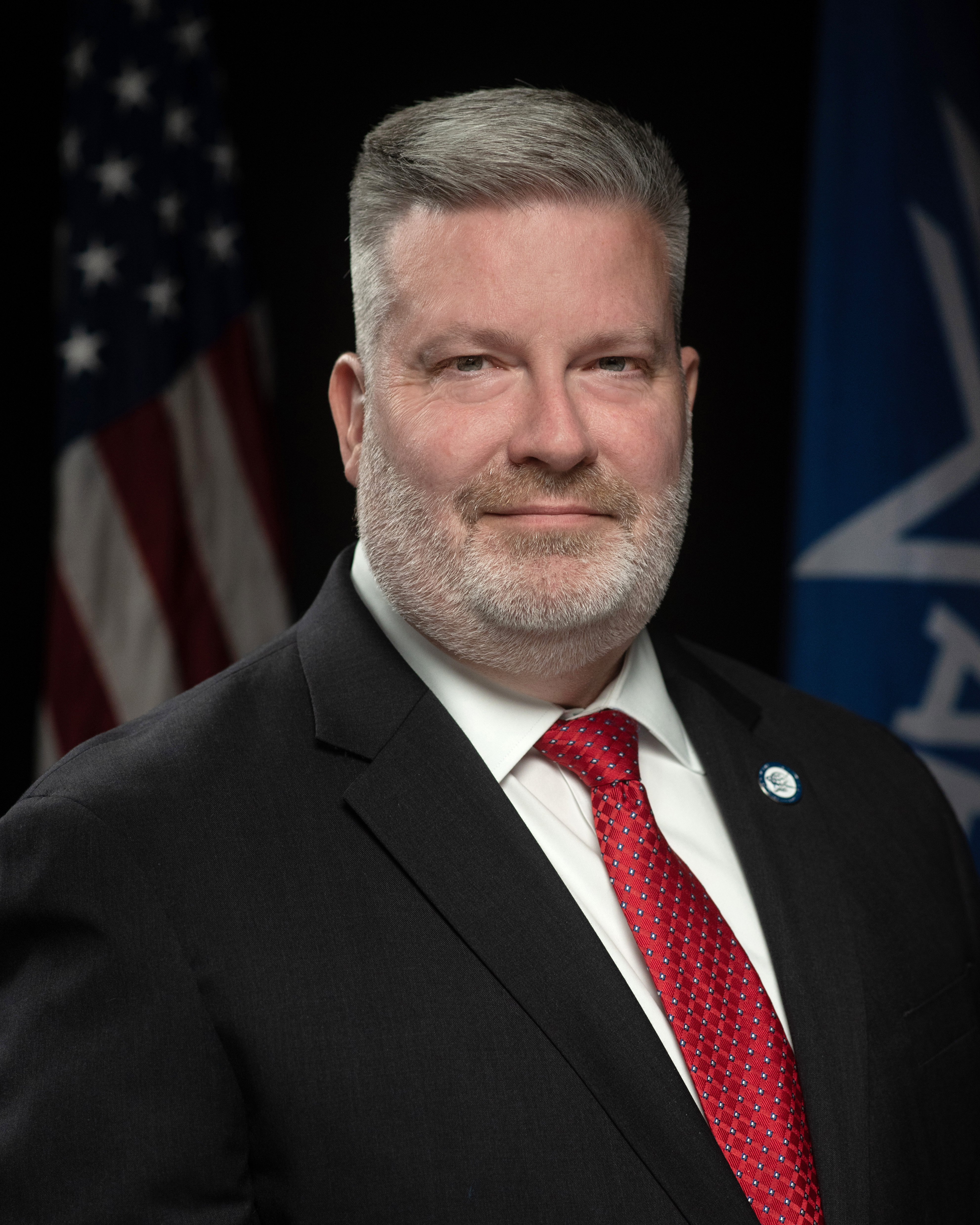
J. Michael Dahm
Background: Prior to joining Mitchell, Dahm worked for federally funded research organizations, the Johns Hopkins University Applied Physics Laboratory and then the MITRE Corporation, advising sponsors across the U.S. national security enterprise and supporting advanced research & development programs.
J. Michael Dahm is a Senior Fellow for Aerospace and China Studies where he focuses on original research, threat-informed assessments, and recommendations for aerospace policy, strategy, and technical issues.
Background: Prior to joining Mitchell, Dahm worked for federally funded research organizations, the Johns Hopkins University Applied Physics Laboratory and then the MITRE Corporation, advising sponsors across the U.S. national security enterprise and supporting advanced research & development programs. He retired from the U.S. Navy having served over 25 years as an intelligence officer with extensive experience in the Asia-Pacific region, including a tour as an Assistant U.S. Naval Attaché in Beijing, China, and as Senior Naval Intelligence Officer for China at the Office of Naval Intelligence. He has served with USMC strike-fighter squadrons, USN carrier air wings, joint staffs and task forces executing operations ranging from non-combatant evacuations in Europe and Africa to combat actions in the Balkans and Southwest Asia.
Areas of focus: Dahm is a recognized authority on geopolitical and military challenges, sought after for threat assessments, war games, and simulations. He conducts complex investigations and leads scenario development exploring advances in military technologies, strategies, and operations. Dahm is a thought leader on future warfare concepts and an expert on China’s “informationized” and “intelligentized” (i.e. artificial intelligence-enabled) strategies and capabilities.
Academic and professional titles: Dahm received a BA in international relations from the University of Southern California. He also earned an MS in strategic intelligence from the National Intelligence University (NIU). He has taught graduate courses at NIU and is currently a Lecturer at the Elliot School of International Affairs at the George Washington University. Dahm is active in the open-source intelligence community and has published extensively on China military issues.
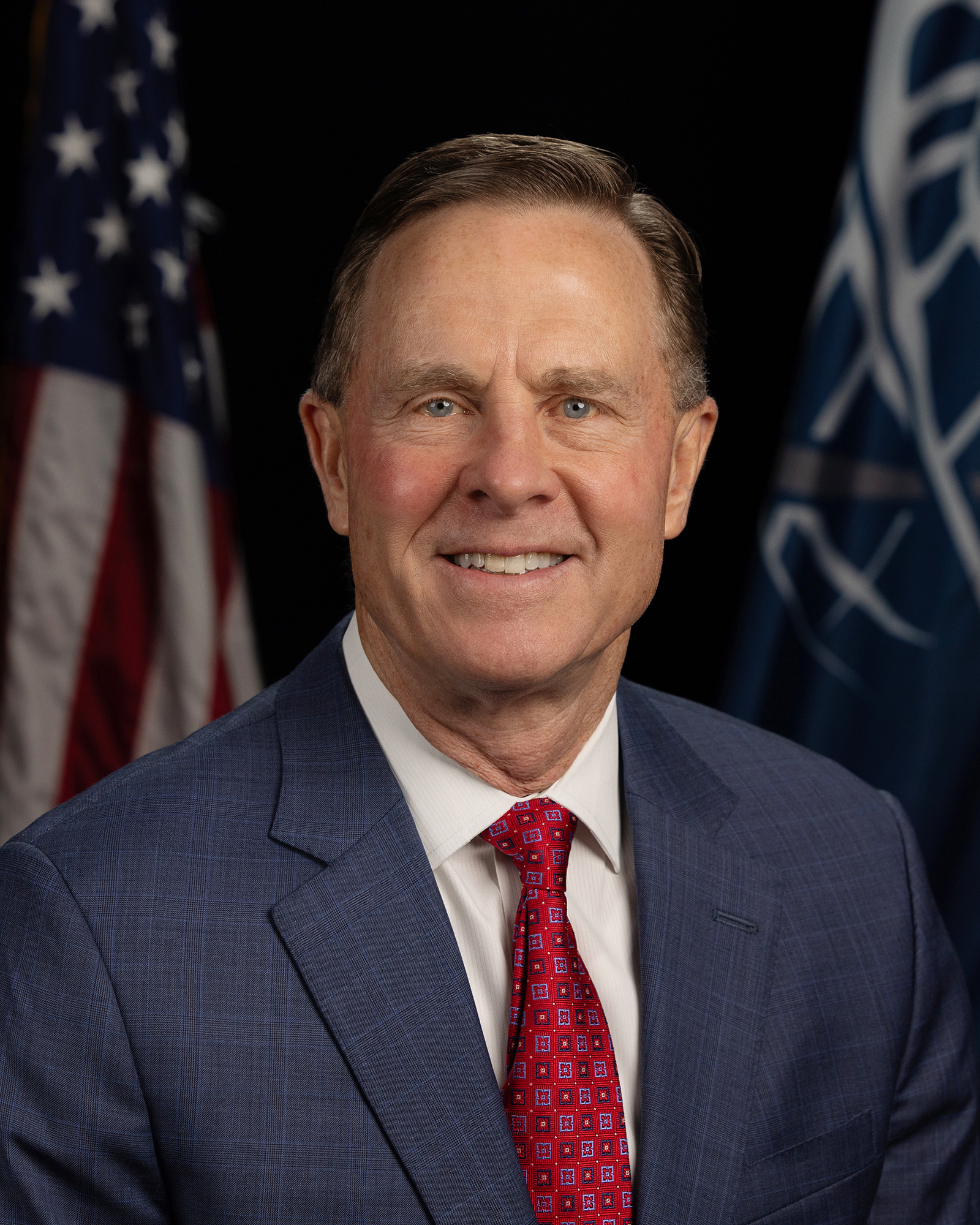
John Venable
Background: Prior to joining Mitchell, Venable worked as a senior research fellow on air and space power for the Heritage Foundation, focusing on the capability, capacity, and readiness of the Department of the Air Force.
John “JV” Venable is a Senior Resident Fellow at the Mitchell Institute for Aerospace Studies. He conducts extensive research on defense policy with a focus on airpower.
Background: Prior to joining Mitchell, Venable worked as a senior research fellow on air and space power for the Heritage Foundation, focusing on the capability, capacity, and readiness of the Department of the Air Force. Prior to that role, JV formed and led a research, development, test and evaluation company in Memphis, Tennessee. During his 25-year career in the Air Force, he accumulated more than 4,500 hours in the F-16 and OV-10 aircraft, graduated from the US Air Force Fighter Weapons School, and held commands at both the squadron and group levels.
Areas of focus: He is a recognized expert on air and space capacity, capability and readiness, and a host of other defense policy issues. JV has written extensively on the Joint Strike Fighter, the F-15EX, readiness, hypersonics, space systems and architectures, and leadership. He is the author of a book on building and leading high-performance teams, titled “Breaking the Trust Barrier.”
Academic and professional titles: JV received his undergraduate degree from Ohio University, majoring Business Management, and followed with master’s degrees in Aeronautical Sciences from Embry Riddle, and Strategic Studies from the Air War College.
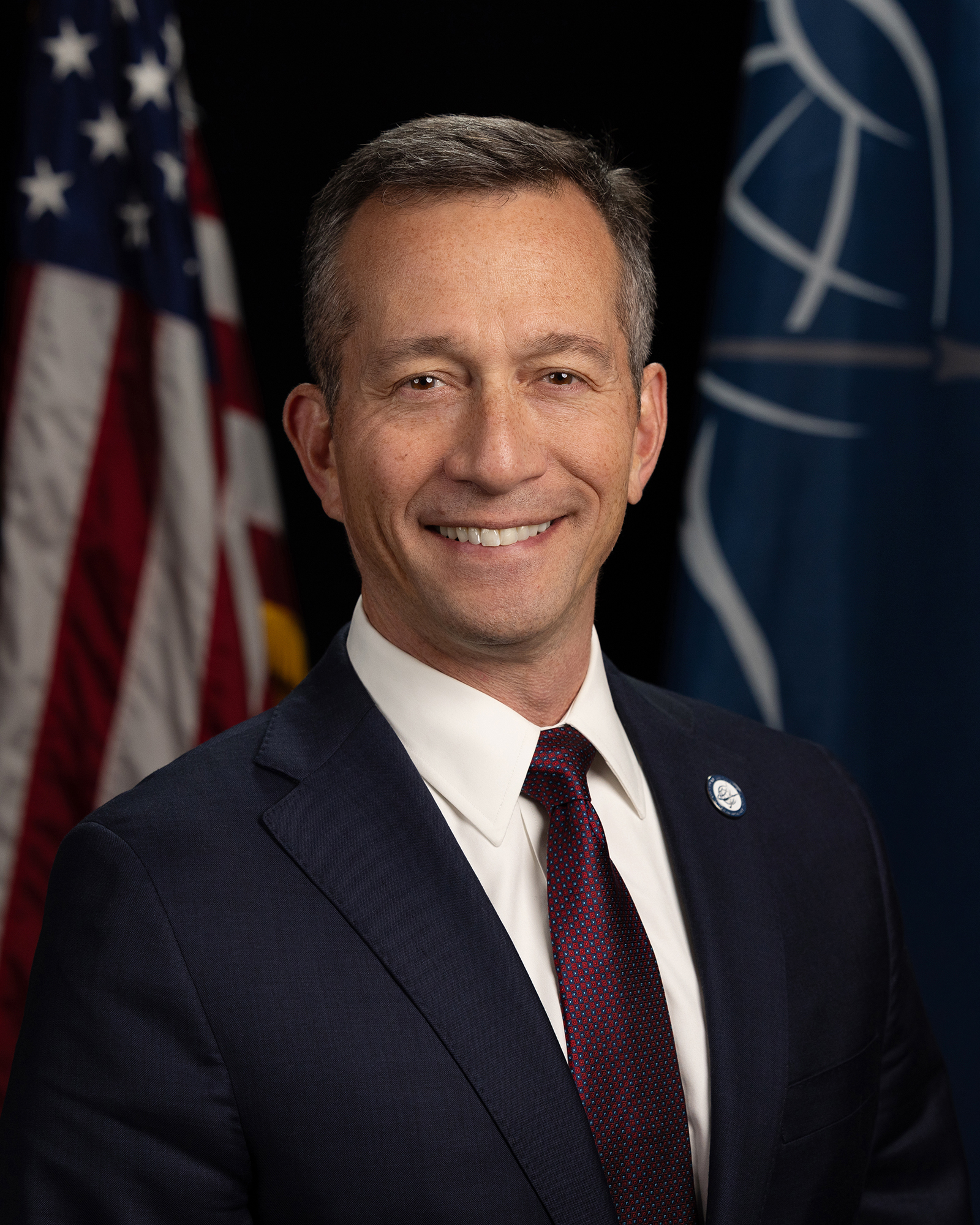
Brig Gen Houston Cantwell, USAF (Ret.)
Background: Brig Gen Houston Cantwell, USAF (Ret.), is an experienced airman and recognized national security expert.
Brig Gen Houston Cantwell, USAF (Ret.) is a Senior Resident Fellow for Airpower Studies at the Mitchell Institute for Aerospace Studies.
Background: Brig Gen Houston Cantwell, USAF (Ret.), is an experienced airman and recognized national security expert. During his 30-year Air Force career, he served as a combat pilot, commander, and strategist, flying the F-16, MQ-9, and RQ-4 aircraft. He also served over 12 years within the Pacific and European theaters and is intimately familiar with major U.S. allies and partners, including North Atlantic Treaty Alliance (NATO) relationships. When Gen Cantwell was the U.S. Forces Japan, Director of Operations, he directly engaged with Japan’s Self Defense Force while shaping policies and managing the bilateral relationship. While Commanding General of NATO’s Alliance Ground Surveillance Force, he helped field NATO’s first collection, intelligence, surveillance, and reconnaissance (ISR) capability, which strengthened the Alliance and built a multinational ISR capability that provided real-time surveillance of the 2022 Russian invasion of Ukraine. As the initial commander of the 732d Operations Group, his unit pushed the tactical cutting edge, employing remotely piloted attack aircraft with new weapons and tactics across multiple areas of operation. Brig Gen Cantwell also served as the Vice Superintendent of the U.S. Air Force Academy and the Commander of the U.S. Air Force Holm Center, providing a rare opportunity to shape the entire Air and Space Force officer accessions enterprise. Most recently, he stood up the Air Force’s very first Warrant Officer Training School.
Areas of Focus: He’s a recognized expert in national security, uncrewed aviation, the NATO Alliance, and ISR operations.
Academic and Professional Titles: Cantwell has a BS in Systems Engineering from the University of Virginia, a Masters of Organizational Management from George Washington University, a Masters of Military Operational Art and Science from the Air Command and Staff College, a Masters of Airpower Art and Science degree from the Air Force’s School of Advanced Air and Space Studies, and a Masters of National Security Strategy from the National War College. Among his career achievements, he was awarded Japan’s Defense Cooperation Medal by Japan’s Chairman of the Joint Chiefs, the Bronze Star Medal during Operation Enduring Freedom, and the Air Force’s Distinguished Service Medal.
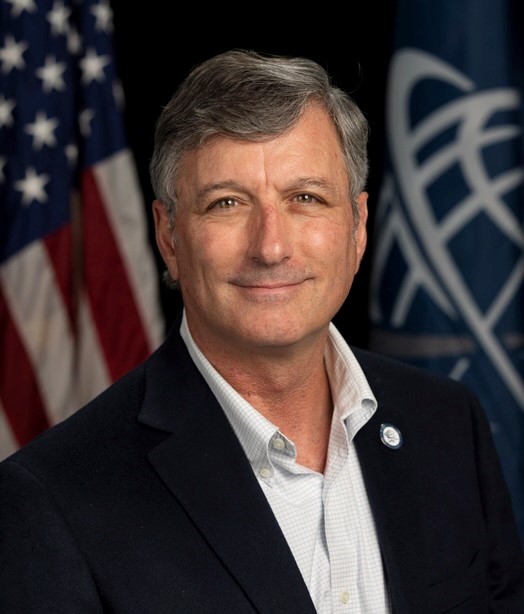
Dr. Ray O’Mara
Background: Dr. O’Mara is a retired United States Air Force Colonel and the founder and owner of Fortress Technology Solutions, LLC. He provides multidisciplinary analysis and insight at the operational and strategic levels in support of defense and national security concept development and mission area analysis.
Dr. Ray O’Mara is a Senior Fellow for the Mitchel Institute for Aerospace Studies.
BACKGROUND: Dr. Ray O’Mara previously served in the Department of Defense as a Highly Qualified Expert (HQE), supporting the Assistant Secretary of Defense for Mission Capabilities
in the Office of the Undersecretary of Research and Engineering [OUSD(R&E) MC] as the Chief Architect for Capability Transition. In this role, he designed and oversaw the transition of the Assault Breaker II program from DARPA into OUSD(R&E). He was also served as a senior government advisor to the Defense Science Board as Executive Secretary of the 2024 Summer Study and the Strategic Options Permanent Subcommittee. Prior to his civilian government service, Dr. O’Mara provided Systems Engineering and Technical Assistance (SETA) support to the Assault Breaker II program. During this time, he led the establishment of the Secure Advanced Framework for Simulation and Modeling (SAFE-SiM) program and also led an advanced concept
development effort focused on the employment of non-kinetic effects in the period prior to armed conflict. Before arriving at DARPA, Dr. O’Mara spent time in the civilian technology development sector, first at Aurora Flight Sciences, and then the Humatics Corporation, a high-technology hardware startup, where he was responsible for developing strategic relationships with key aerospace partners as well as directing defense-oriented research and development. During Dr. O’Mara’s 29-year Air Force career, he completed several operational and operational test flying assignments, amassing over 2,000 hours in the F-15C aircraft. He also served on the USAF headquarters staff, was the commander of the 83d Fighter Weapons Squadron, where he executed the
USAF’s air-to-air Weapon System Evaluation Program, and was the Chair of the Strategy Department at the Air War College.
AREAS OF FOCUS: Dr. Ray O’Mara provides multidisciplinary analysis and insight at the operational and strategic levels in support of defense and national security concept development and mission area analysis. He focuses on airpower theory, operations, and the development and integration of technologies and autonomy into human-machine systems.
ACADEMIC AND PROFESSIONAL TITLES: Dr. O’Mara is a retired United States Air Force Colonel and the founder and owner of Fortress Technology Solutions, LLC. He received his commission through the Reserve Officer Training Corps program at Rensselaer Polytechnic Institute and is a graduate of the Air Command and Staff College, the School of Advanced Airpower Studies, and the Air War College, and he completed his Ph.D. studies at MIT in Technology, Policy, and Engineering Systems. In 2022, he published Rise of the War Machines: The Birth of Precision Bombing in World War II through the Naval Institute Press.
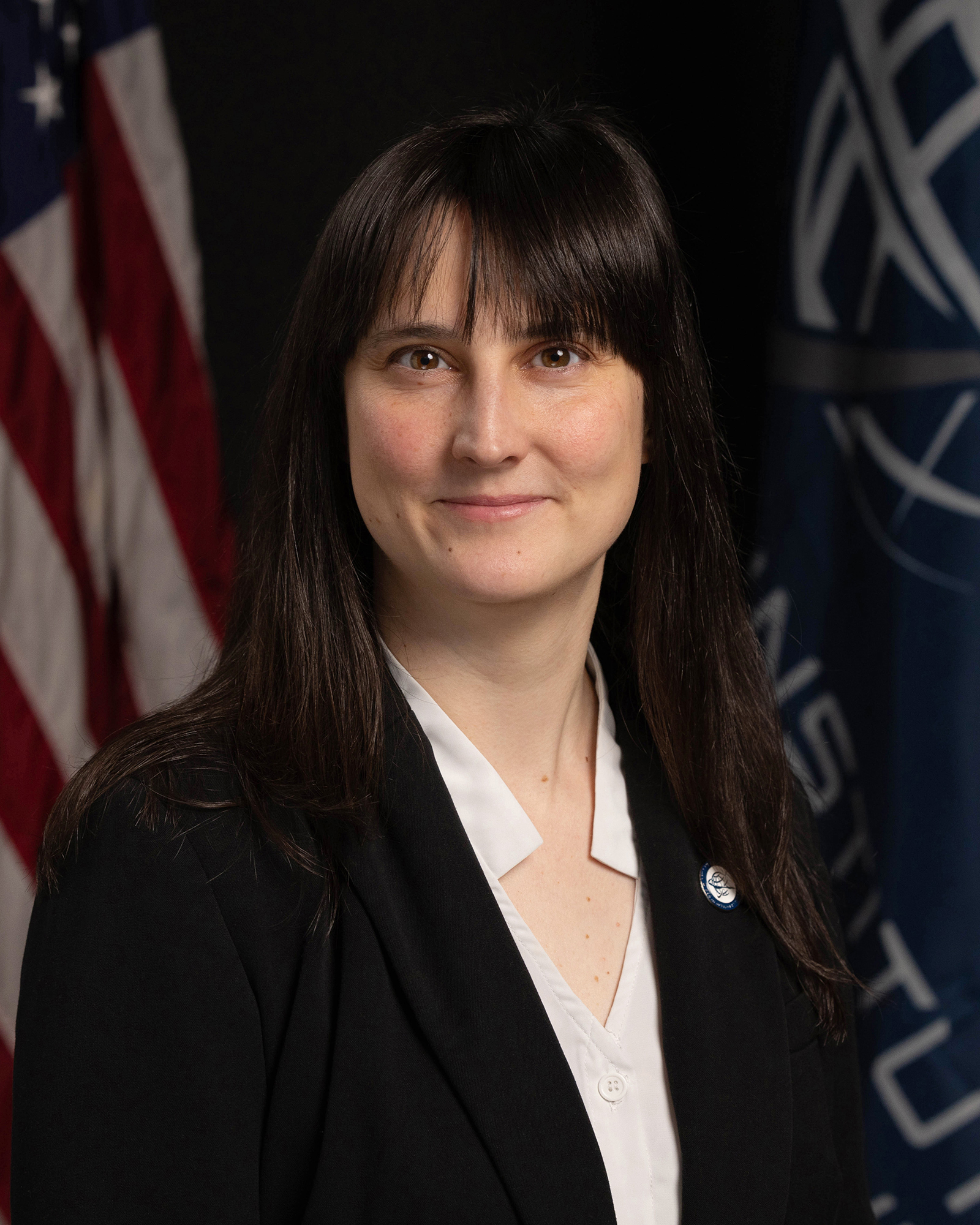
Kamilla Gunzinger
Background: In addition to coordinating the Institute’s several research and writing projects, Ms. Gunzinger also manages multiple speaker series, public engagement efforts, and outreach programs.
Kamilla Gunzinger is the Senior Program Director at the Mitchell Institute for Aerospace Studies.
Background: In addition to coordinating the Institute’s several research and writing projects, Ms. Gunzinger also manages multiple speaker series, public engagement efforts, and outreach programs. Before starting at Mitchell, she was the Publications Manager at the Center for Strategic and Budgetary Assessments (CSBA) from 2013–2020 where she edited and published several Congressionally mandated studies on U.S. Air Force and Navy force structure, in addition to other monographs for the Office of Net Assessment and DARPA, as well as for public release. She has experience designing and planning workshops, wargames, and tabletop exercises and helped coordinate the first three annual Directed Energy Summits in Washington, DC. She also worked for Scholastic Asia in Beijing from 2008–2010.
Areas of focus: East Asian geopolitics and security, U.S. military partnerships with Japan and the Republic of Korea, Chinese military culture, informationized warfare, wargaming.
Academic and professional titles: Ms. Gunzinger received a BA in Global Studies from the College of William and Mary and an MA in International Studies from Concordia University, Irvine. She speaks Mandarin Chinese and Japanese, and she also completed a year-long exchange program at Keio University in Tokyo.
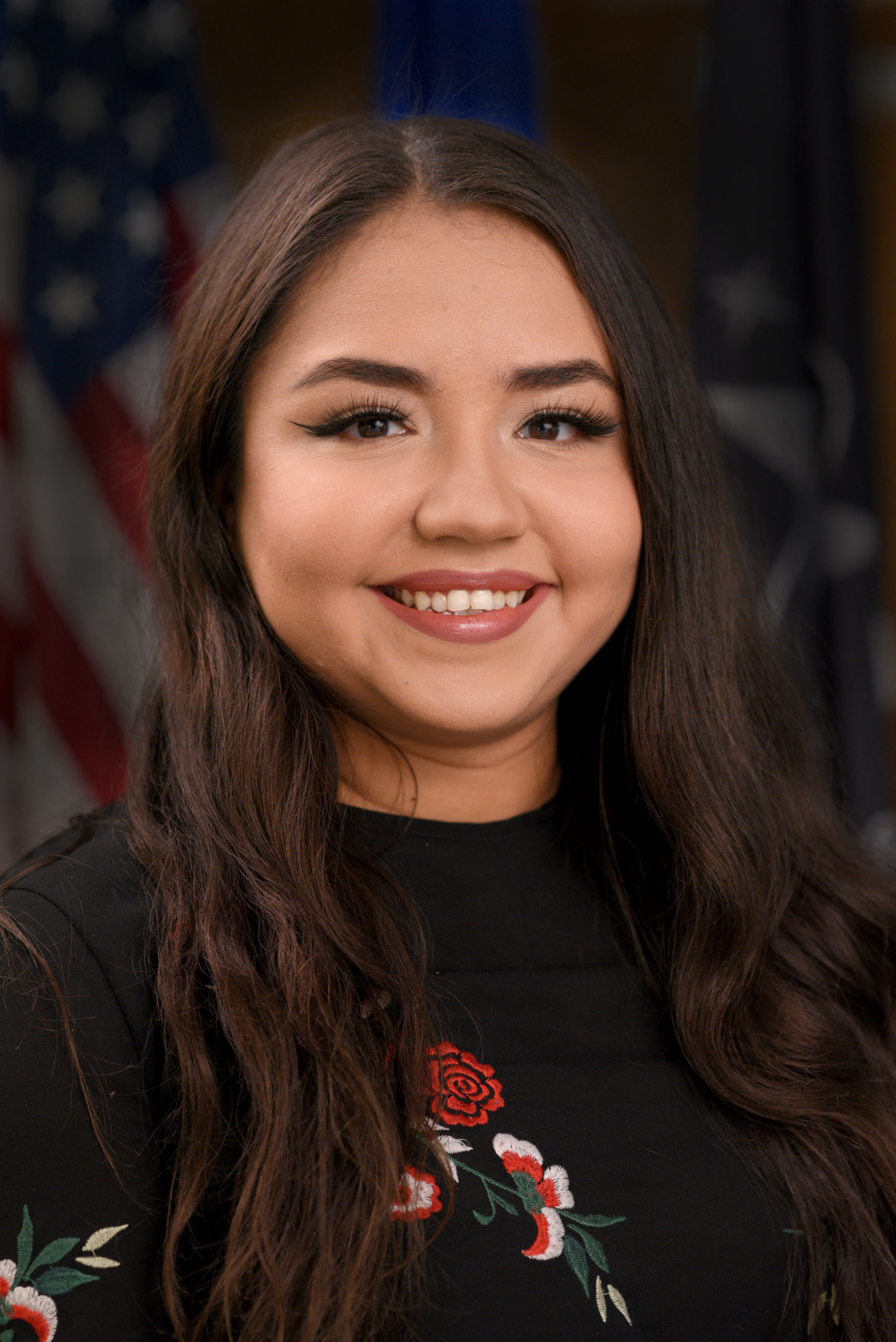
Ana Maria Waldo
Background: Ana Maria graduated from the University of Texas – Rio Grande Valley in 2017. She is responsible for daily support in all areas of event planning and execution, administrative services, external relations, office management, and budget. She supervises website content and maintenance, social media content and presence, and production of the Aerospace Advantage podcast.
Ana Maria Waldo is the Operations Specialist at the Mitchell Institute for Aerospace Studies.
Background: Ana Maria graduated from the University of Texas – Rio Grande Valley in 2017. She is responsible for daily support in all areas of event planning and execution, administrative services, external relations, office management, and budget. She supervises website content and maintenance, social media content and presence, and production of the Aerospace Advantage podcast.
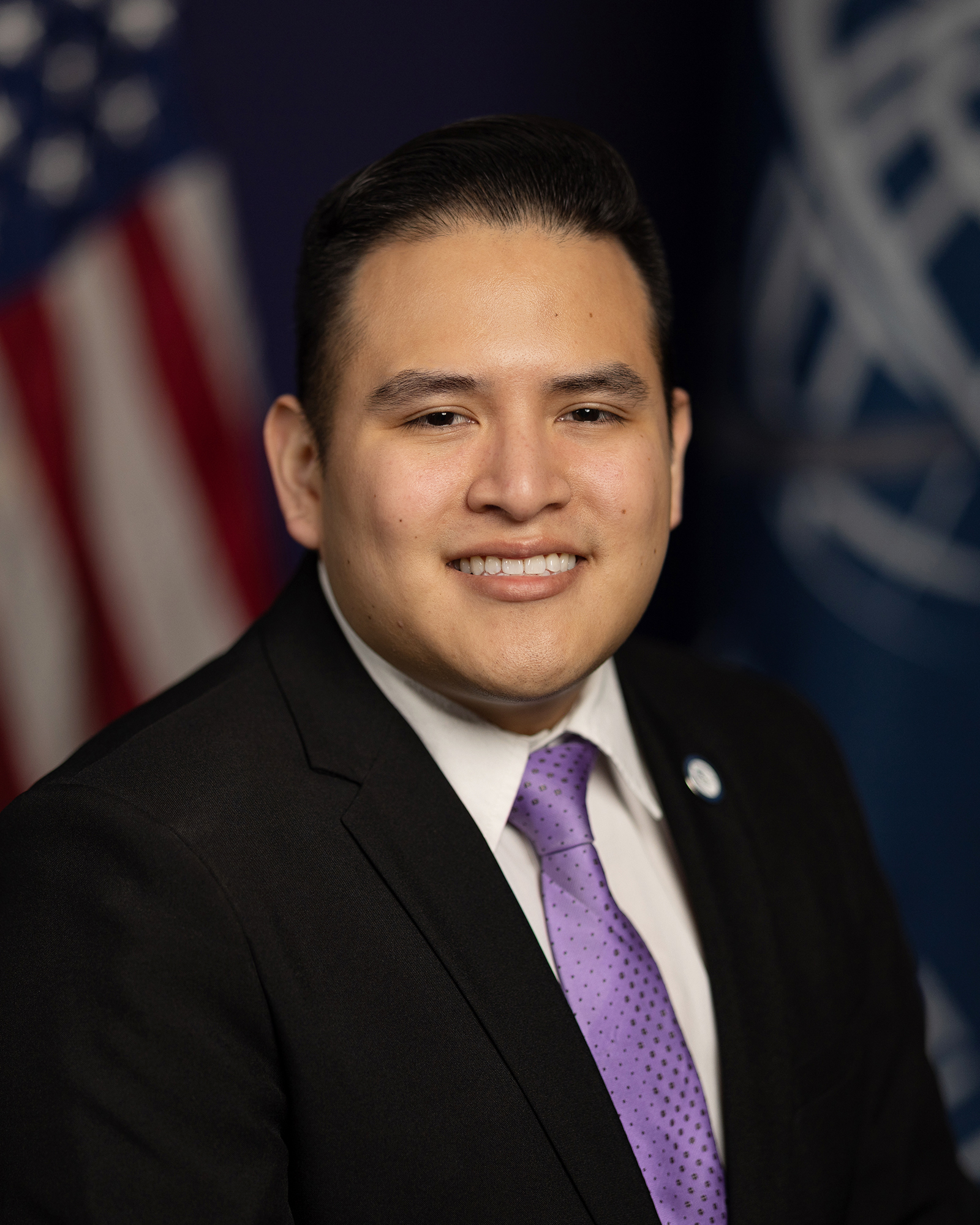
Luis Panduro
Background: Luis attended George Mason University and has a wide-ranged background in administration. He is responsible for daily support to the Operations Specialist in all areas of administrative services, including supporting events, website, external relations, and publications. As Operations Coordinator, he plays a key role in organizing, supporting, and tracking meetings and events.
Luis Panduro is the Operations Coordinator at the Mitchell Institute for Aerospace Studies.
Background: Luis attended George Mason University and has a wide-ranged background in administration. He is responsible for daily support to the Operations Specialist in all areas of administrative services, including supporting events, website, external relations, and publications. As Operations Coordinator, he plays a key role in organizing, supporting, and tracking meetings and events.

Joshua Baker
Background: Joshua recently completed his Master of Arts in International Relations at Johns Hopkins SAIS. At the Mitchell Institute, Joshua supports research activities concerning the future of air and space power. Before joining the Mitchell Institute, Josh previously interned with the Center for a New American Security and worked as a research assistant for Dr. Christopher Sands at the SAIS Center for Canadian Studies and for Dr. Thomas Mahnken at the SAIS Merrill Center for Strategic Studies.
Joshua Baker is a Research Analyst at the Mitchell Institute for Aerospace Studies.
Background: Joshua recently completed his Master of Arts in International Relations at Johns Hopkins SAIS. At the Mitchell Institute, Joshua supports research activities concerning the future of air and space power. Before joining the Mitchell Institute, Josh previously interned with the Center for a New American Security and worked as a research assistant for Dr. Christopher Sands at the SAIS Center for Canadian Studies and for Dr. Thomas Mahnken at the SAIS Merrill Center for Strategic Studies.
Areas of focus: Defense budgeting and acquisition, nuclear deterrence, great power competition, strategy.
Academic and professional titles: Joshua completed his Bachelor of Arts with Honours (First Class) in History at the University of Calgary. He earned his Master of Arts in International Relations from the Johns Hopkins School of Advanced International Studies (SAIS).
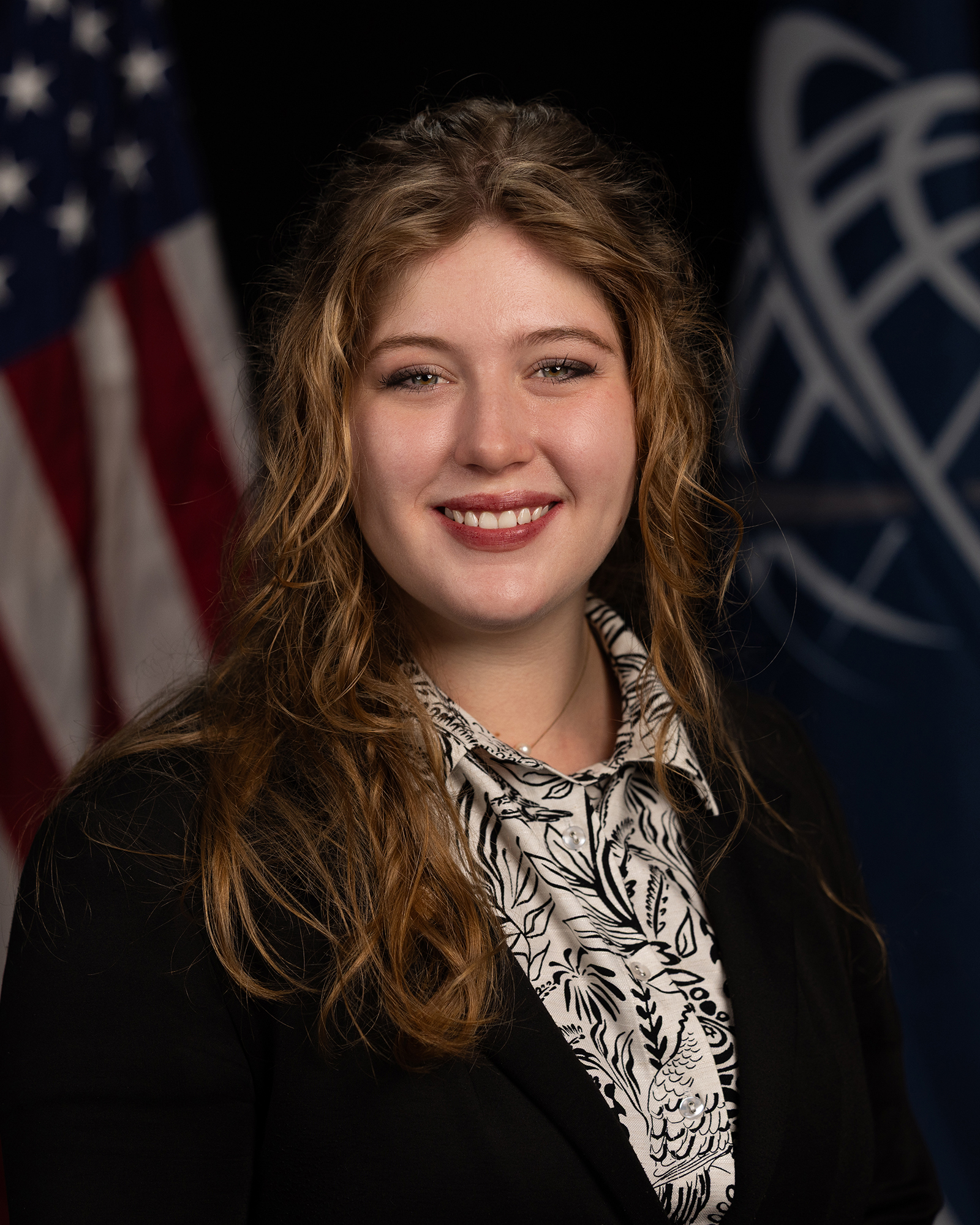
Elizabeth Endicott
Background: Elizabeth is currently an undergraduate, majoring in International Affairs and minoring in Chinese Language and Literature at the George Washington University. At the Mitchell Institute, Elizabeth offers daily support to the Operations Specialist and Operations Coordinator in select areas of administrative services. She is responsible for organizing and managing library resources as well as producing short-form video content for Mitchell's social media.
Elizabeth Endicott is an intern at the Mitchell Institute for Aerospace Studies.
Background: Elizabeth is currently an undergraduate, majoring in International Affairs and minoring in Chinese Language and Literature at the George Washington University. At the Mitchell Institute, Elizabeth offers daily support to the Operations Specialist and Operations Coordinator in select areas of administrative services. She is responsible for organizing and managing library resources as well as producing short-form video content for Mitchell’s social media.
Air Force Fellows
Since 1958, the Air Force has carefully chosen a small number of officers to serve tours at distinguished civilian academic institutions, inter-governmental agencies, and think tanks. Through these programs, the Mitchell Institute invests in the future by supporting the development and education of future Air Force leaders.
The Senior Development Education (SDE) program is directed at the strategic level of development, usually for O-5/O-6/GS-15 or equivalent grades, and designed to develop leadership and broaden perspectives.
The Strategic Policy Fellowship program seeks to provide Air Force officers with demonstrated potential for future leadership with insight into inter-governmental agency and civilian defense policy community thinking, broader overall perspectives, and sharper executive skills.
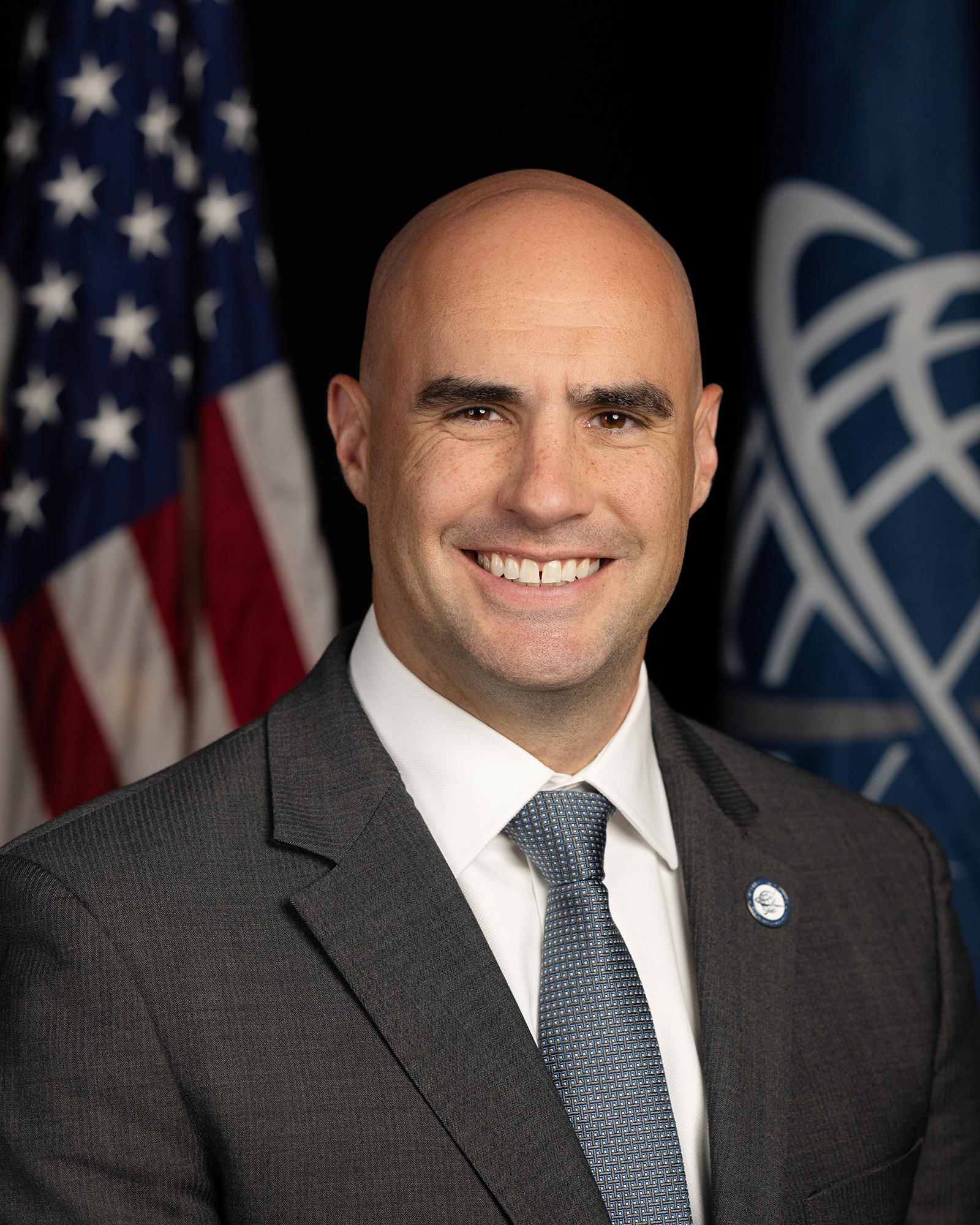
Lt Col Ryan Stillwell
Background: Lt Col Stillwell has served in a variety of operational leadership positions as an evaluator and Weapons Officer to include combat bomber squadron director of operations and commander.
Background: Lt Col Stillwell has served in a variety of operational leadership positions as an evaluator and Weapons Officer to include combat bomber squadron director of operations and commander. Other highlights include his role as Branch Chief of Future Concepts & Capabilities at US Air Forces in Europe, a Weapons School Instructor, flying over 100 combat missions across three deployments in the US Central Command Area of Responsibility and commanding three Bomber Task Force deployments to the European and Indo-Pacific theaters.
Academic and Professional Titles: Lt Col Stillwell was commissioned into the Air Force in 2007 with a degree in Mechanical Engineering from the U.S. Air Force Academy then graduated from the Euro-NATO Joint Jet Pilot Training program. He was a distinguished graduate of both the U.S. Air Force Weapons School in 2014 and the School of Advanced Nuclear Deterrence Studies in 2020 before attending the School of Advanced Air and Space Studies in 2021. He holds three master’s degrees in military strategy, military operational art and science, and business accounting.
Non-Resident Fellows
The Mitchell Institute’s non-resident fellows provide subject matter expertise that spans the aerospace dialogue ranging from authoring our studies and contributing to publications, to providing their expertise and perspectives in interviews, op-eds, and at key events and forums.
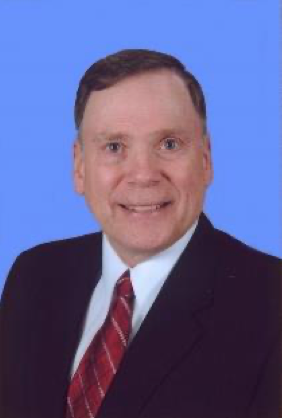
Gen John P. Jumper, USAF (Ret.)
Gen John P. Jumper joined the private sector in November 2005 following a 39-year Air Force career, culminating in his selection to serve as the 17th Chief of Staff of the United States Air Force. As the Air Force’s senior military officer he was also a member of the Joint Chiefs of Staff, providing military advice directly to the President of the United States, the Secretary of Defense and the National Security Council. Prior to his position as Chief of Staff, General Jumper served as a wartime commander during conflicts in Iraq, Serbia and Kosovo, including command of Air Combat Command, U.S. Air Forces in Europe and Joint Task Force Southwest Asia. He also served as Senior Military Assistant to two U.S. Secretaries of Defense, Dick Cheney and Les Aspin.
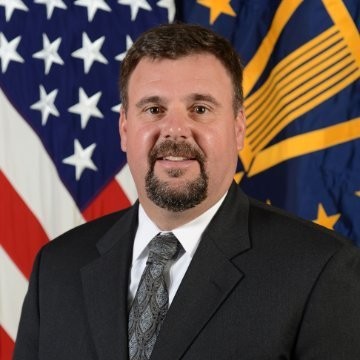
James Moreland Jr, Ph.D.
Dr. James Moreland has extensive experience in systems design, development, integration and construction; Defense planning and budgeting; Acquisition policy; Effects-based targeting analysis; Requirements generation and documentation; Joint warfare analysis for acquisition decision studies and integrated warfighting capabilities (e.g. force structure (presence/surge, long-range shipbuilding strategy), JCIDS, AoAs, CBAs, Acquisition strategies, etc.); RDT&E and S&T planning and execution; and Development and documentation of sound engineering policies, standards, and processes as technical warrant holder and chief engineer.
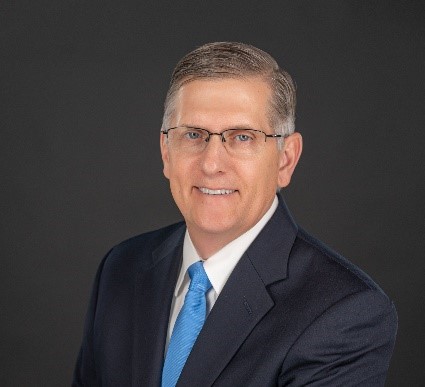
Gen Tim Ray, USAF (Ret.)
Gen Tim Ray is a highly decorated, retired United States Air Force General most recently serving as Commander of Air Force Global Strike Command. Concurrently he served as the Commander of Air Forces Strategic-Air, United States Strategic Command with a focus on strategy and operational excellence. He excels at developing, fielding, operating and sustaining security capabilities as a result of his vast experience and insights across multiple disciplines: technology development and acquisition, joint and combined military operations from the tactical to the strategic, executive leadership, civil-military relationships, and international security. This was demonstrated as a member of the Air Force’s “Corporate Board” team of senior leaders, shaping future force structure, modernization and budget priorities for the United States Air Force. Tim is recognized for solving huge challenges, developing and leading successful global teams, and aerospace power development. He excels at mitigating risk, managing change and creating positive organizational culture.
Tim led the nation’s Air Force Strategic Strike forces in daily operations in support of national objectives globally. He directed modernization efforts for command and control, aircraft, ICBM, infrastructure and support equipment. His leadership and vision were instrumental to the organization thriving and improving in its no-fail mission during the COVID-19 Pandemic and shift to strategic competition with near peer adversaries.
Prior, Tim served as the Deputy Command, US European Command where he was the Deputy Commander for all US Joint Forces in Europe. He was responsible for joint, combined operations, planning and exercises to ensure US and coalition military readiness and regional stability all during Russian efforts to destabilize Europe, North Africa and the Middle East. In his role he worked with partners and allies through Europe and the Middle East on complicated, wide ranging strategic issues.
Previously Tim commanded eight Air Force Wings throughout Europe and Africa supporting the US Joint and coalition operations supporting 5 separate commands. He led daily air operations to include Reconnaissance, Refueling, Airlift, Command and Control and Strike operations. Additional he led the Joint Task Force to conduct ballistic missile defense of key allies in the region. Earlier in his career Tim was the Deputy Director of Fighter, Bomber and Weapon Programs to the Air Force Assistant Secretary of Acquisition. In this role he was responsible for fighter and bomber aircraft and weapons acquisition programs. He was a key interface with the Secretary of Defense’s acquisition staff, Congress and Air Force Major Commands to manage key acquisition and budget decisions.
Tim has a Master of Science degree in Aviation Sciences and Management from Embry-Riddle Aeronautical University in Daytona Beach Florida and a Master of Science degree in Strategic Studies from Air War College, Maxwell AFB, Alabama. He holds a Bachelor of Science degree in Human Factors Engineering from the U.S. Air Force Academy and is a Distinguished graduate of the Air Command and Staff College.
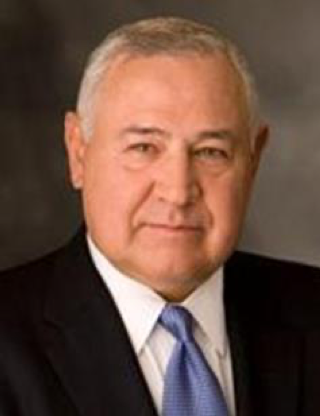
Gen Charles Wald, USAF (Ret.)
Gen Charles Wald serves as Vice Chairman, Federal Practice Senior Advisor, Deloitte Services, LP. He is responsible for providing senior leadership in strategy and relationships with the U.S. Department of Defense. General Wald is a subject matter specialist in weapons procurement and deployment, counterterrorism, and international energy security policy.
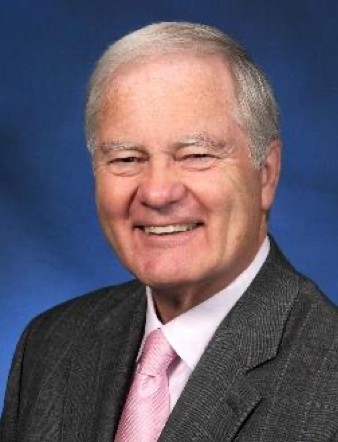
Gen Ronald Keys, USAF (Ret.)
Gen Ronald Keys retired from the Air Force in November 2007 after completing a career of over forty years and command of eight different organizations including operational, staff, and international units. General Keys was an instructor and later Commandant of the USAF Weapons School. He also led the team that stood up the Air Force’s first Doctrine Center and was its first Commander.
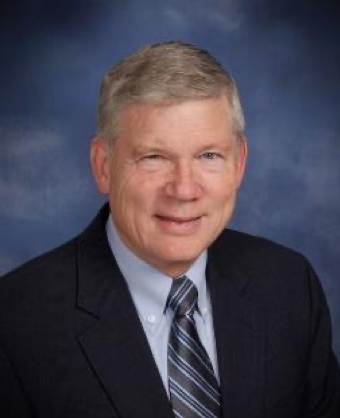
Lt Gen Robert Elder, USAF (Ret.)
Lt Gen Robert Elder is currently a member of the George Mason University where he is a research professor with the Volgenau School of Engineering. Elder began his work at George Mason University following his retirement from military service as the Commander of 8th Air Force and U.S. Strategic Command’s Global Strike Component. He currently conducts research in the areas of command and control, deterrence, escalation control involving international competition short of armed conflict, crisis management, and international actor decision-making. General Elder served as the
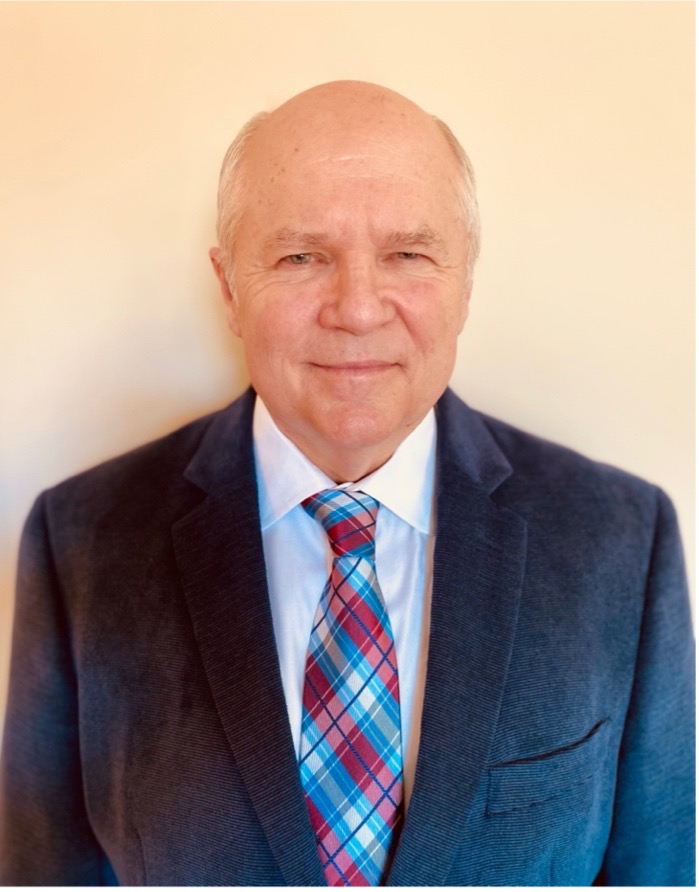
Maj Gen Charlie Lyon, USAF (Ret.)
Lyon recently retired from a major aerospace & defense corporation as the Vice President, Government Relations where he led the Air Force customer relations team. Lyon advised corporate leadership as they competed for and developed capabilities with focus on the Department of the Air Force’s future force structure needs. He is a five-time commander who led units from squadron through expeditionary task force commands. Lyon served as the initial 9th Air & Space Expeditionary Task Force-Afghanistan commander during the 2010–2011 surge operations.
Lyon has over 40 years of aerospace & defense experience including 3,800 flight hours; predominately in the F-16 and B-1. He amassed over 1,110 combat hours in Operations ENDURING FREEDOM, IRAQI FREEDOM, ALLIED FORCE, NORTHERN WATCH, SOUTHERN WATCH, and PROVIDE COMFORT. Lyon was the Air Force’s first senior officer to qualify as a remotely piloted aircraft (RPA) mission pilot where he flew MQ-1 Predator combat support missions in support of DoD and other government agencies.
His most recent focus includes developing concepts for multi-domain operations in highly contested environments. He is an airpower advocate with extensive expertise and experience in joint warfighting, command & control, doctrine, operational capabilities development (JCIDS), realistic training, and defense programming (PPBE).
Lyon holds a B.A. in Mathematics from The Citadel and an M.S. in National Security Strategy from the National War College. He was awarded the Distinguished Service Medal, Distinguished Flying Cross, and Bronze Star Medals for combat operations in the U.S. Europe/Africa/Central Commands’ areas of responsibility.
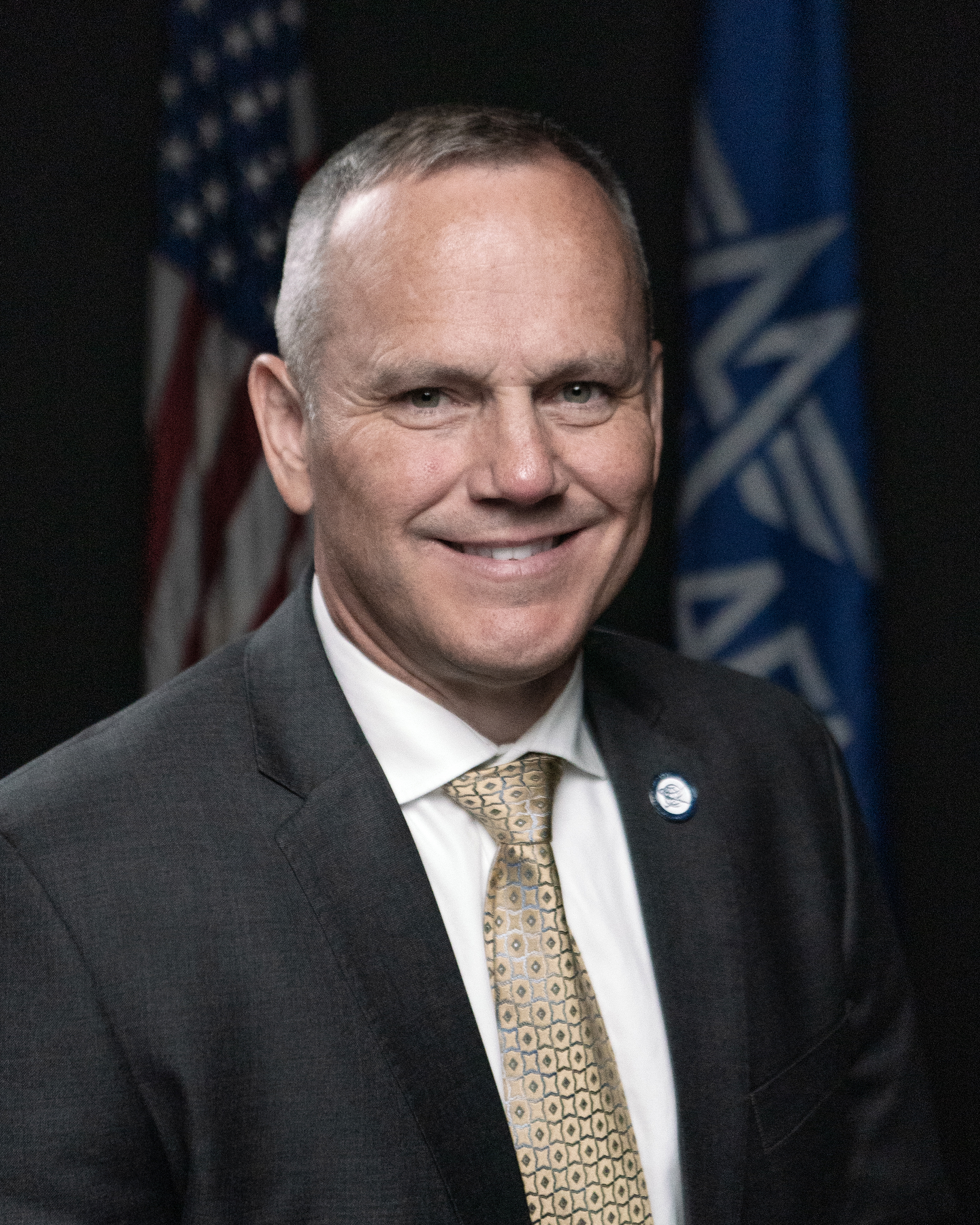
Maj Gen Charles S. Corcoran, USAF (Ret.)
Maj Gen (Ret.) Corcoran is a recognized expert on military aerospace issues, national security, leadership, and innovation. A 1992 graduate of the USAF Academy, he commanded the 525th Fighter Squadron , 325th Operations Group, 3rd Wing, 380th Air Expeditionary Wing, and USAF Warfare Center. His staff assignments included Director of Operations, Strategic Deterrence, and Nuclear Integration at US Air Forces Europe and Air Forces Africa, Deputy Chief of Staff for Operations at NATO Air Command, and Chief of Staff at US Air Force Central Command. His final active duty assignment was as the Air Force’s Assistant Deputy Chief of Staff, Operations, at Headquarters, U.S. Air Force, where he was responsible to the Secretary of the Air Force and Chief of Staff for formulating policy supporting air, irregular warfare, counter-proliferation, homeland security, weather, and cyber operations. A command pilot with more than 3,200 hours in the F-15 and F-22, including over 440 combat hours, Maj Gen Corcoran retired from the active duty in 2023 after more than 31 years of distinguished service.
He is a highly respected, proven combat leader and operator in the National Security Field. He has 31 years of experience successfully leading diverse organizations of up to 15,000 personnel across the globe in support of US national security objectives. Throughout his career he consistently demonstrated the ability to build win-win relationships with personnel across US government, commercial and defense industries, and international partners to achieve common goals. He also brings to Mitchell a solid reputation as an innovator whose intellectual curiosity and disruptive thinking facilitates positive growth and learning in every organization he touches.
Maj Gen Corcoran has BS from the USAF Academy (1992), an MBA from Touro University (2003), and an MS in National Security Studies from the National War College (2011). He was a distinguished graduate of Air Force Pilot Training, Squadron Officer School, and the USAF Weapons School. He also serves as a board member at the Missile Defense Advocacy Alliance and an independent consultant on leadership and national security.
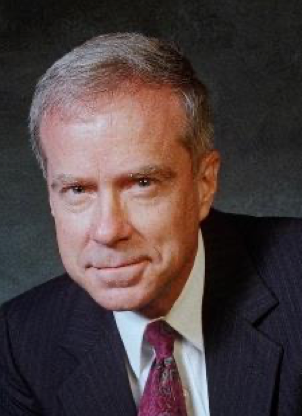
Maj Gen Curtis Bedke, USAF (Ret.)
Maj Gen Curtis Bedke provides insights as a defense aerospace and federal science and technology consultant for both government and commercial organizations. He retired from the Air Force in 2010 with 32 years of experience in defense weapon systems science and technology, program acquisition, experimental flight test, operations, and command and control. From 2007 until his retirement, Gen Bedke was the Commander of the Air Force Research Laboratory at Wright-Patterson Air Force Base, responsible for the Air Force’s $2.2 billion S&T program.
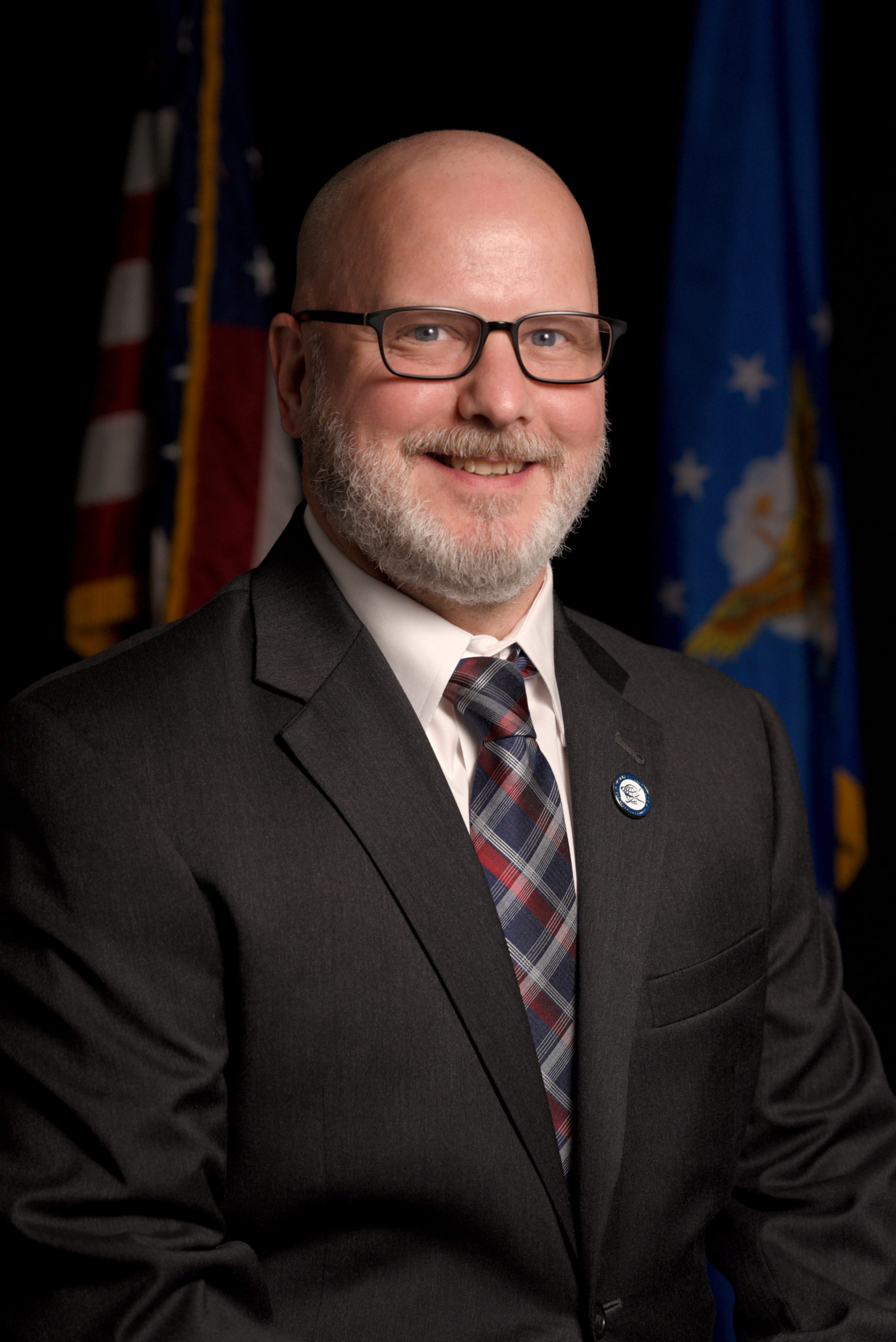
Tim Ryan
Tim Ryan is Non-Resident Fellow for Space Studies at the Mitchell Institute’s Spacepower Advantage Center of Excellence (MI-SPACE). Tim is a retired United States Air Force Lieutenant Colonel and a Command Space Operator with expertise in Missile Warning, NRO, SATCOM and ICBM operations. Prior to joining Mitchell, Tim served as the Associate Director for Joint and National Security Council Matters on the Headquarters United Space Force staff. Prior to that, Tim served in numerous space, National Reconnaissance Office, National Security Agency, Headquarters Air Force Space Command and Chairman of the Joint Chiefs of Staff positions. He also deployed as a member of the USCENTCOM Director of Space Forces staff. In addition, he is a proud 2016 Air Force Strategic Policy Fellowship alumni.
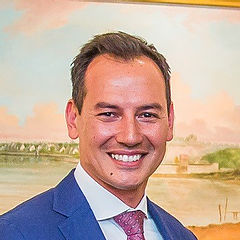
John Baum
Background: Prior to joining Mitchell, Mr. Baum worked as a defense contractor providing strategic planning, aircraft acquisitions and air power employment to support the Department of Defense. He retired as a Lieutenant Colonel in the USAF, serving as an F-16 Weapons School Instructor, F-35 Tactics Development Team Lead, USAF Thunderbird Demonstration Pilot, SECAF Strategic Communications Fellow and HAF Air Dominance Requirements Officer.
John Baum is a Non-Resident Fellow for the Mitchell Institute for Aerospace Studies where he focuses on strategic communication and key aerospace leader engagement by providing research discussions on defense policy and tactical employment of aerospace power.
Background: Prior to joining Mitchell, Mr. Baum worked as a defense contractor providing strategic planning, aircraft acquisitions and air power employment to support the Department of Defense. He retired as a Lieutenant Colonel in the USAF, serving as an F-16 Weapons School Instructor, F-35 Tactics Development Team Lead, USAF Thunderbird Demonstration Pilot, SECAF Strategic Communications Fellow and HAF Air Dominance Requirements Officer. John has over 2,300 hours in the F-16 and served in OPERATION JOINT FORGE, OPERATION JOINT GUARD, OPERATION IRAQI FREEDOM, OPERATION ENDURING FREEDOM and OPERATION NOBLE EAGLE.
Areas of focus: He’s a recognized expert of/established voice on tactical and operational employment of air and space power, integration of weapons systems across the USAF and USSF domains and strategic development of future concepts, aerospace vehicles and weapons.
Academic and professional titles: Baum received BS and MS degrees from Embry-Riddle Aeronautical University, majoring in Aeronautical Science with a minor in Aviation Safety and Accident Investigation; and earned a Master of Arts in Strategic Communications from George Mason University. He also chaired the Aerospace Science Department as a full professor at Wilkes University. John maintains his FAA ATP/CFII ratings flying vintage warbirds and aerobatic aircraft.

Col Robert “Otis” Winkler, USAF (Ret.)
Robert “Otis” Winkler served as a professional staff member on the Senate Armed Services Committee from 2018 until 2022 and was the Staff-lead for Air Land Subcommittee, responsible for legislative oversight of all Air Force and Army programs. Additionally he was responsible for oversight of all space activities including U.S. Space Force and Space Command, all manned and unmanned aviation in DoD, electro-magnetic spectrum operations, warfighting networks, and hypersonic/counter-hypersonic weapons development for the Department of Defense.
In previous roles, Otis served in the U.S. Air Force, as an F-16 Weapons School Graduate with assignments in Europe, Asia and the Middle East. He commanded an F-16 Fighter Squadron and an Operations Group comprised of fighter & air control squadrons. His staff assignments included the Director of the Weapons Systems Division for the U.S. Air Force Legislative Liaison Office and the Special Assistant to the Director of the Defense Advanced Research Project Agency (DARPA). Additionally, he served in industry as a Senior Principal for Strategy and Advanced Technology at Harris Corporation.
Mr. Winkler holds a B.S. in Engineering from the University of Illinois, an M.A. in National Security Policy from American Public University, an M.S. in Strategy and Joint Campaign Planning from National Defense University, and an M.S. in National Security Strategy from the National War College.
He currently serves as the Vice President of Corporate Development and National Security Programs for Kratos Defense.
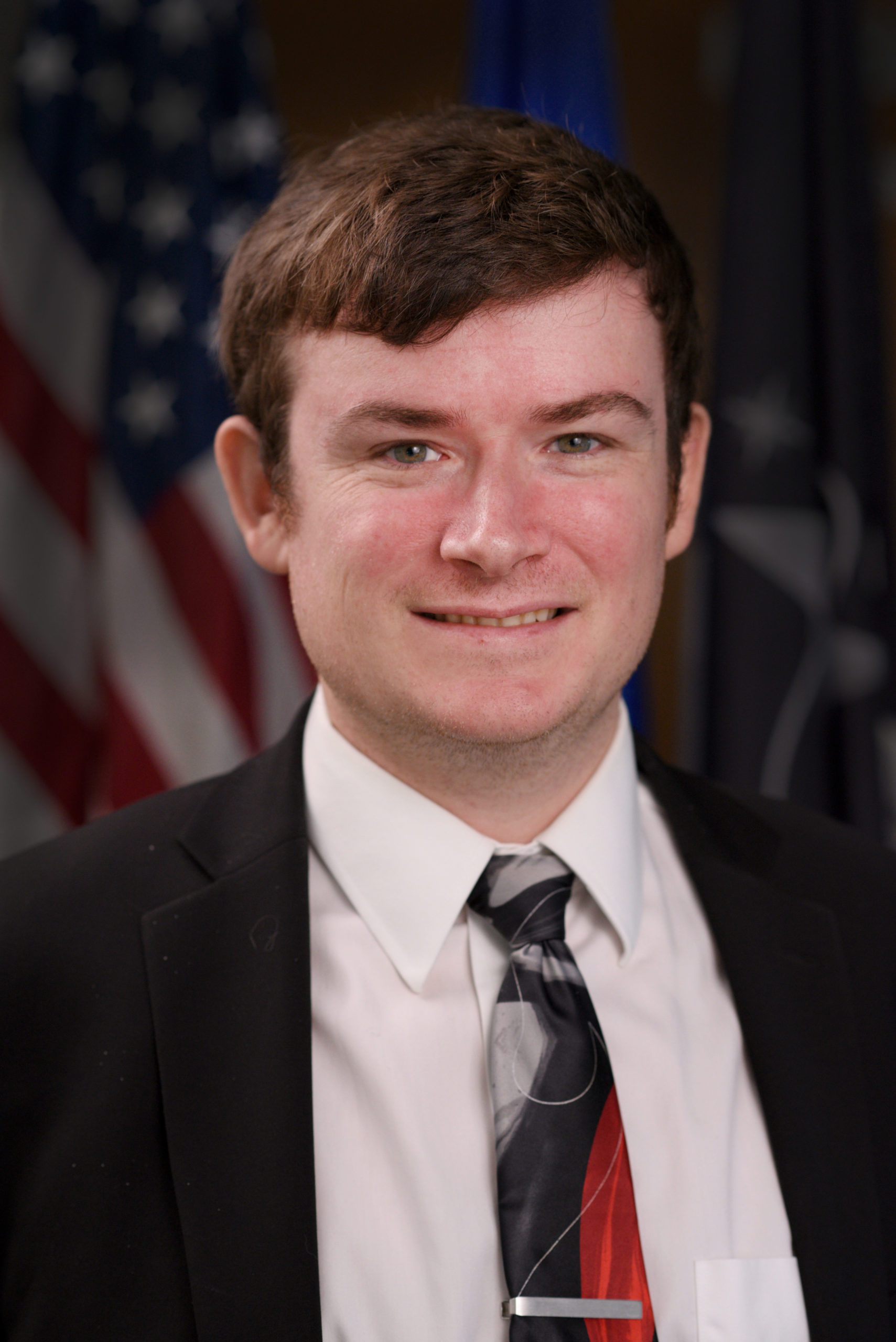
Daniel Clayton Rice
Daniel graduated from John Hopkins School of Advanced International Studies in 2019 after spending years working and studying in China. He is a regular volunteer contributor to the Geopolitical Risk analysis firm Foreign Brief where he publishes weekly geopolitical briefs on underreported events. His areas of study at SAIS were Strategic Studies, Intelligence, China, and the Middle East. Prior to his studies he was engaged in entrepreneurial ventures in education with a focus on recruiting international students from China. He is a fluent Mandarin speaker and speaks some Spanish and Arabic.
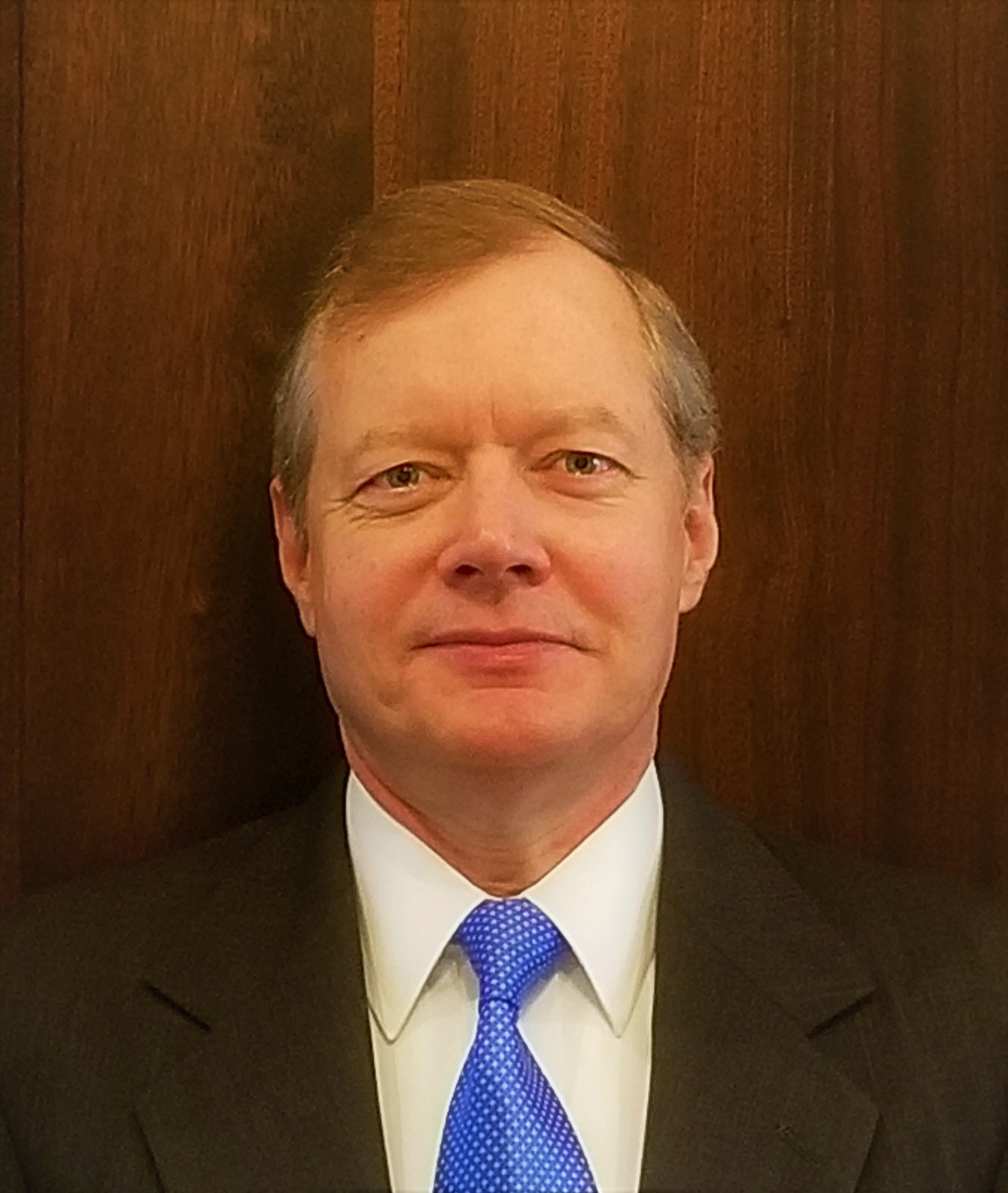
Robert Haddick, USMC (Ret.)
Robert Haddick, USMC (Ret.) is a Visiting Senior Fellow at the Mitchell Institute. Haddick supports the Institute’s mission to develop the roles of air, space, and cyber capabilities and explore their contributions to national security strategies. Haddick has lectured widely across the U.S. government on strategy, the strategic competition in the Indo-Pacific region, and special operations.
Haddick is the author of Fire on the Water: China, America, and the Future of the Pacific. The U.S. Naval Institute Press will publish the second edition of Fire on the Water in the spring of 2022. The first edition of Fire on the Water, published in 2014, warned readers about the rapid rise of China’s military power and described how U.S. policymakers and military planners were failing to prepare for the deteriorating security situation in the Indo-Pacific region. The first edition was translated into Mandarin and Korean and was widely sold across North America, Europe, and the Indo-Pacific region.
The fully revised second edition of Fire on the Water updates China’s military modernization through 2021 and forecasts China’s military capabilities into the 2030s. The second edition examines the shortfalls in the U.S response to China’s military expansion over the past decade. Applying the principles of strategy, the new edition describes a detailed approach for maintaining conventional deterrence in the Indo-Pacific over the long term, recommending a strategy that applies U.S. and allied aerospace advantages against China’s vulnerabilities in an affordable and sustainable manner.
Haddick’s work for the Mitchell Institute includes reports on long-range standoff nuclear deterrence; defense reform proposals co-written with a former Supreme Allied Commander for Europe; nuclear command, control, and communications; and an airpower history project conducted for the U.S. Defense Department’s Office of Net Assessment.
Haddick served as a contractor at U.S. Special Operations Command. His work there included authoring peer-reviewed monographs for Joint Special Operations University Press on future roles for special operations forces in the Indo-Pacific great power competition; sustaining special operations unconventional warfare campaigns in denied areas; and how special operations forces can contribute to comprehensive deterrence strategies.
Haddick’s service as a U.S. Marine Corps officer included security force assistance activities in East Asia, the Indian Ocean region, and Africa. His duties also included nuclear command and control under the Personnel Reliability Program.

James Swartout
James Swartout is an executive at the MITRE Corporation’s National Security Sector where he serves as the Director of Integration and Plans. Before coming to MITRE, Swartout served as the Chief of Staff to the Secretary of the Air Force and was a member of the Senior Executive Service. In the Air Force he also served as Senior Advisor to the Secretary of the Air Force and the Under Secretary of the Air Force. In 2015, Swartout was the Spokesperson and Senior Advisor to the Secretary of Defense during Ash Carter’s Senate confirmation and transition back to the Pentagon.

Alan Vick
Alan Vick was a member of the research staff at RAND for 38 years, retiring in 2021. He has authored or coauthored over 40 publications on defense policy. Alan’s RAND reports include: Air Base Defense: Rethinking Army and Air Force Roles and Functions (2020); Is the USAF Flying Force Large Enough? Assessing Capacity Demands in Four Alternative Futures (2018); and Proclaiming Air Power: Air Force Narratives and American Public Opinion from 1917 to 2014 (2015).
In addition to his research duties, Alan served in several management positions at RAND: Associate Director of Project AIR FORCE (PAF) (2002-2004); Acting Director of the PAF Strategy and Doctrine Program (2003-2004); Associate Director of the PAF Strategy and Doctrine Program (1998-2001); and Project AIR FORCE liaison to the Air Staff (1989-1994). Alan received his Ph.D. in political science from the University of California, Irvine. He currently volunteers as a docent at the Evergreen Air and Space Museum in McMinnville, Oregon.
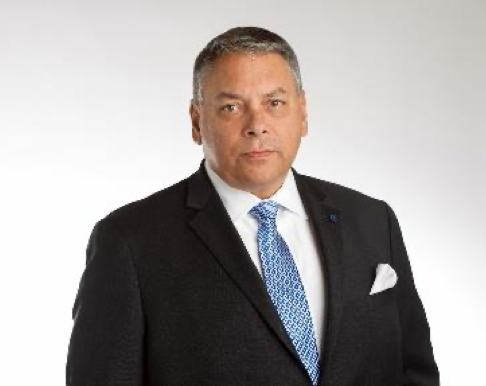
Kevin Billings
Kevin Billings is founder and CEO of Legation Strategies. He was appointed by President George W. Bush to serve as Assistant Secretary of the United States Air Force for Installations, Environment and Logistics where his responsibilities included the world-wide management and direction of the Air Force’s $38 billion installations, logistics, environment, and energy programs. His experience has been multi-dimensional in terms of strategic management, international and domestic business operations, transformation and change management.

Brian J. Morra
Brian J. Morra is a former, highly decorated US Air Force Intelligence officer. He is a retired Senior Vice President at Northrop Grumman where he served in executive roles in general management, strategy, and business development. Previously, he was a senior executive at General Dynamics, Veridian, and Pacific-Sierra Research.
He is the author of the award-winning Able Archers series of historical novels based on his experience as an intelligence officer during the late Cold War period and during Operation Desert Storm. He is a senior advisor to the aerospace and defense practice at the Bain Company and a board member at CAE, USA, and he serves on the Board of Regents at the Potomac Institute for Policy Studies.
His areas of expertise are: intelligence (all aspects of ISR), advanced technology for defense applications, space operations, and defense electronics.

Michael J. Campanelli
Mr. Campanelli is a national security focused technical expert turned business leader with over twenty years of aerospace, intel, and defense experience with a focus in ISR and space cybersecurity. Presently, Michael is responsible for the global aerospace & satellite professional services business at Amazon Web Services (AWS). Michael was most recently the Vice President of Federal at venture capital-backed startup SpiderOak Inc. where he led the wholly owned subsidiary SpiderOak Mission Systems. At SpiderOak, Michael created the new product line, OrbitSecure, working on the next generation of cyber protection for on-orbit space assets. Michael is also the owner and managing partner of dy/dx LLC, a US consultancy business which offered services to individuals and companies seeking to enter, understand, and/or operate in the future space ops environment and its dependence on the new space economy, CoCo ISR, sensors, and a Hybrid Space Architecture. A former Director on the Board of Directors for the United States Geospatial Intelligence Foundation (USGIF), Michael was previously the Executive Director of Business Development at Prominent Edge and prior to that the Deputy Division Manager for the Data Liberation Division at MAXAR. Michael serves on AFCEA International’s Technology Committee, the Visiting Committee for the Mechanical & Aerospace Engineering Department at West Virginia University, and teaches Space Systems Security as an adjunct professor at Indiana University. During his career Mr. Campanelli has served in both operational support, mission planning, systems engineering roles, co-authored the rewrite on the national image quality equation coefficients, and also wrote some of initial requirements on moving target intelligence. Michael has had the honor and privilege to work both behind a desk and in the field, including the opportunity to deploy as a civilian with USS The Sullivans. Mr. Campanelli earned a B.S. in Aerospace Engineering and a B.S. in Mechanical Engineering from West Virginia University, a M.S. in Systems Engineering from The George Washington University, and completed post-graduate study in Geospatial Intelligence at Penn State University.
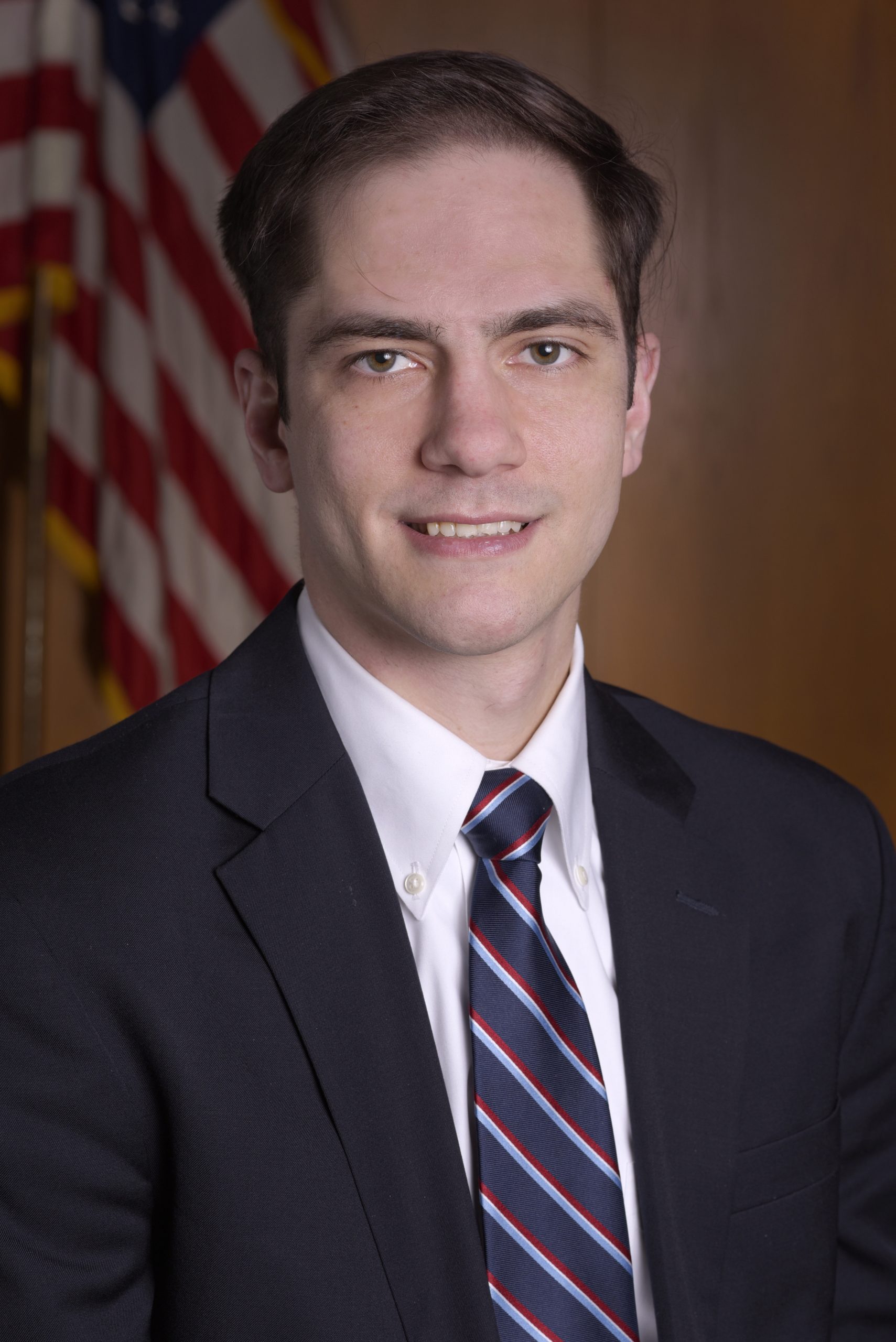
Lukas Autenried
Lukas Autenried is an Operations Research Analyst at Systems Planning & Analysis, where he primarily supports its Joint, OSD, and Interagency Division.
Prior to joining SPA, Mr. Autenried was a Senior Analyst at the Mitchell Institute Spacepower Advantage Center of Excellence (MI-SPACE), where his work focused on aerospace concepts and capabilities, force development, defense budgets, and systems modeling and analysis. He was also previously an Analyst at the Center for Strategic and Budgetary Assessments (CSBA) and a Research Assistant for the Finance and Private Sector Development team at the World Bank.
Mr. Autenried holds a Bachelor of Arts in Government and History from Georgetown University and a Master of Arts in Strategic Studies and International Economics from the Johns Hopkins University School of Advanced International Studies.
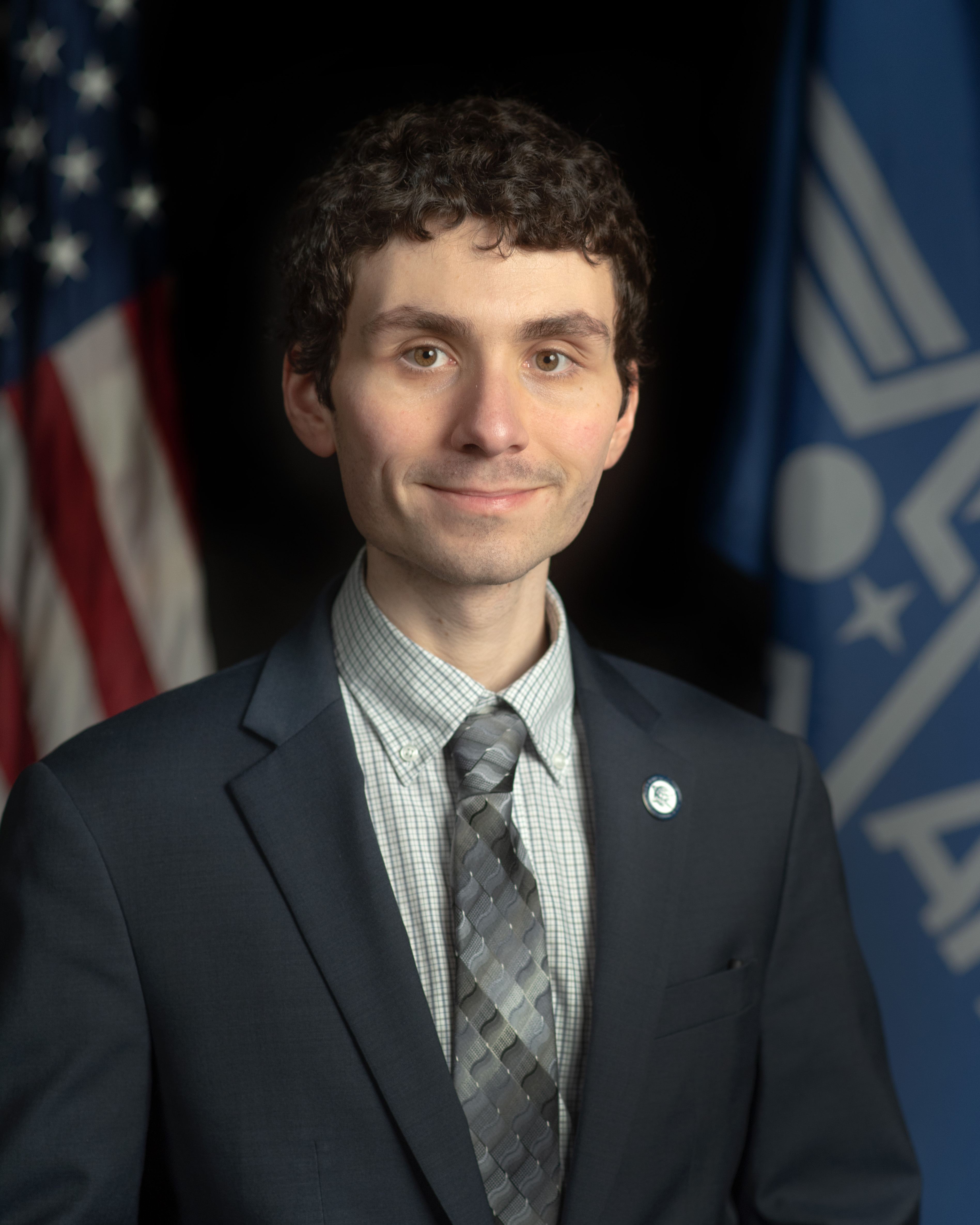
Aidan Poling
Background: Aidan currently works as a Space Industrial Base subject matter expert (SME) supporting The Office of the Assistant Secretary of the Air Force for Space Acquisition and Integration (SAF/SQ).
Aidan Poling is a Non-Resident Fellow at the Mitchell Institute for Aerospace Studies.
Background: Aidan currently works as a Space Industrial Base subject matter expert (SME) supporting The Office of the Assistant Secretary of the Air Force for Space Acquisition and Integration (SAF/SQ). Prior to SAF/SQ, Aidan was a Senior Research Analyst at the Mitchell Institute, where he supported Mitchell’s research on the future of air and space power. Aidan has also previously worked for the Atlantic Council, the State Department, and Capitol Hill.
Areas of focus: Defense industrial policy. Space power and space warfighting, commercial space, budget analysis, military analysis, military effectiveness, and great power competition.
Academic and professional titles: Mr. Poling received a BA in Government and History from Georgetown University in 2020. He received an MA in Security Studies from the Georgetown University Security Study’s Program in May 2023.
Air Force Fellows Alumni
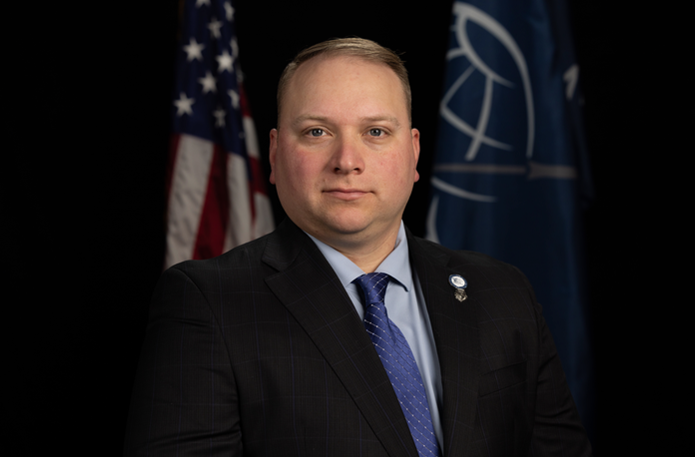
Lt Col Grant Georgulis
Background: Lt Col Georgulis entered the Air Force in 2007 through the ROTC program at Texas State University-San Marcos. He has served on an air component staff, was an Air Force Weapons School instructor, and graduated from the Naval War College’s College of Naval Command and Staff and the School of Advanced Air and Space Studies. Before his current assignment, he was the Commander, 965 Airborne Air Control Squadron, Tinker Air Force Base, Oklahoma. He has also accumulated 1,600 hours on the E-3B/C/G and E-767.
Lt Col Grant Georgulis is an Air Force Senior Developmental Education Fellow and a Master Air Battle Manager at the Mitchell Institute for Aerospace Studies, for the academic year 2024-2025.
Background: Lt Col Georgulis entered the Air Force in 2007 through the ROTC program at Texas State University-San Marcos. He has served on an air component staff, was an Air Force Weapons School instructor, and graduated from the Naval War College’s College of Naval Command and Staff and the School of Advanced Air and Space Studies. Before his current assignment, he was the Commander, 965 Airborne Air Control Squadron, Tinker Air Force Base, Oklahoma. He has also accumulated 1,600 hours on the E-3B/C/G and E-767.
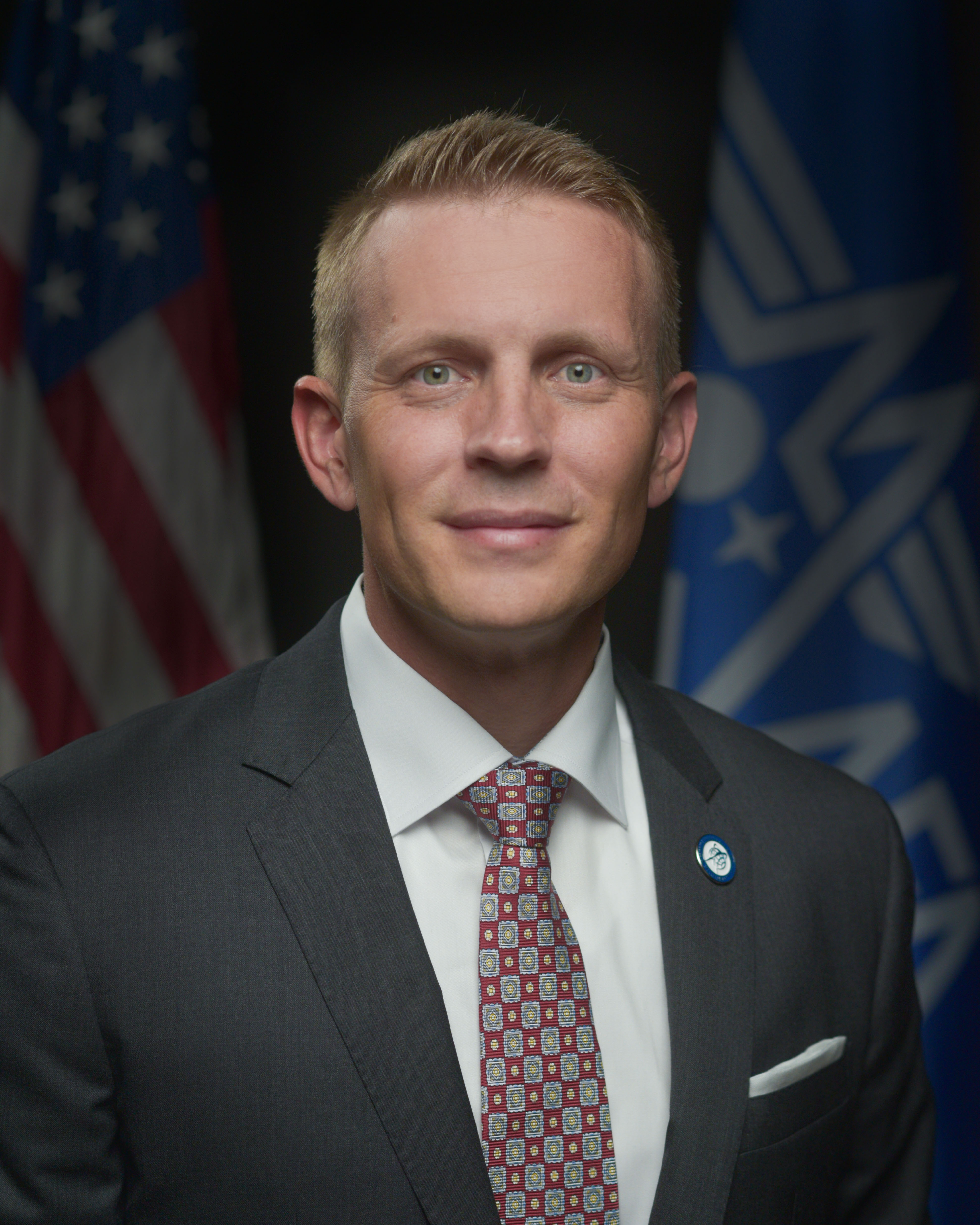
Col Maxwell Cover
Background: In 2018, Col Cover transitioned to the F-35A Lightning II at Hill Air Force Base, where he served in a variety of operational leadership positions as an evaluator and instructor pilot to include fighter squadron director of operations and commander, 388th Operational Support Squadron.
Col Maxwell Cover is an Air Force Senior Developmental Education Fellow and F-35A command pilot assigned to the Mitchell Institute for the academic year 2023–2024.
Background: In 2018, Col Cover transitioned to the F-35A Lightning II at Hill Air Force Base, where he served in a variety of operational leadership positions as an evaluator and instructor pilot to include fighter squadron director of operations and commander, 388th Operational Support Squadron. He led combat missions in both 4th generation and 5th generation fighter aircraft and led the Air Force’s largest 5th generation immediate response force deployment where he conducted agile combat operations (ACE) over a 90-day period in support of U.S. Central Command operations. Previously, after graduating pilot training from Euro-NATO Joint Jet Pilot Training (ENJJPT), he was selected for F-16CM training and flew numerous operational assignments as an evaluator and instructor pilot specializing in suppression of enemy air defenses (SEAD).
Academic and Professional Titles: Col Cover was commissioned into the Air Force in 2005 as a distinguished graduate from R.O.T.C. Det. 450, Bozeman, Montana. In 2017, he graduated from the U.S. Marine Corps Command and Staff College as a distinguished graduate and was selected for the USAF’s premier graduate program, the School of Advanced Air and Space Studies (SAASS). He holds three master’s degrees in military strategy, military operational art and science, and finance.
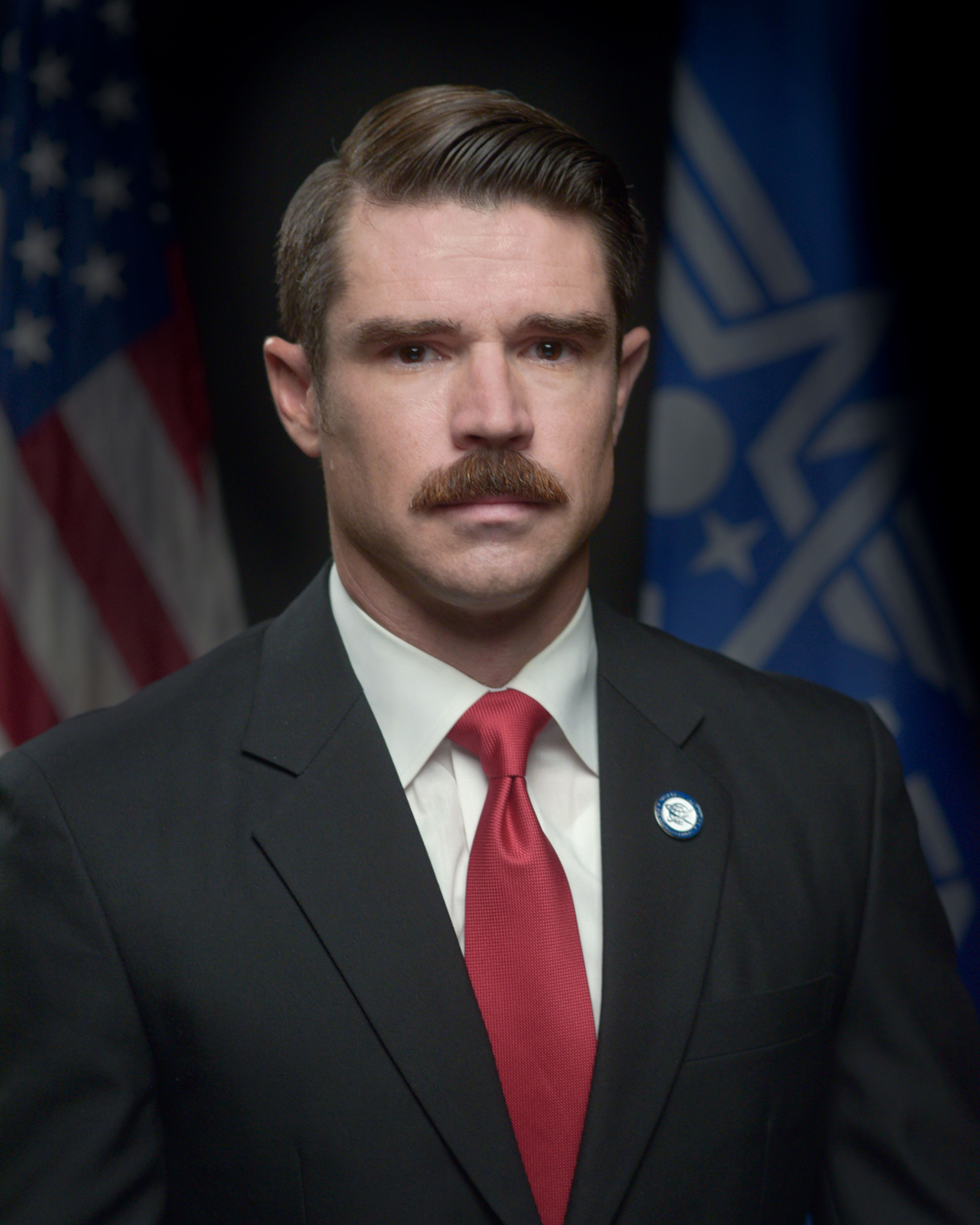
Lt Col Gary Glojek
Background: Most recently, Lt Col Glojek commanded the 354th Fighter Squadron at Davis-Monthan Air Force Base, where he advanced agile combat employment, signature management during dispersed operations, and small team mission command to improve the survivability and lethality of combat air forces.
Lt Col Gary Glojek is an Air Force Senior Developmental Education Fellow and A-10 command pilot assigned to the Mitchell Institute for academic year 2023–2024.
Background: Most recently, Lt Col Glojek commanded the 354th Fighter Squadron at Davis-Monthan Air Force Base, where he advanced agile combat employment, signature management during dispersed operations, and small team mission command to improve the survivability and lethality of combat air forces. Lt Col Glojek served as an instructor pilot and flight evaluator while leading as a Combat Search and Rescue Mission Commander and Forward Air Controller (Airborne). He accumulated over 2,000 hours in the A-10C over five operational assignments, including over 250 combat hours in Afghanistan and 80 missions to the Korean demilitarized zone. He also completed the Chief of Staff of the Air Force’s Blue Horizons Fellowship, where he advanced adversarial artificial intelligence technology to counter geospatial intelligence.
Academic and Professional Titles: Lt Col Glojek commissioned from the United States Air Force Academy in 2006, where he earned a Bachelor of Science in English degree, after which he completed specialized undergraduate pilot training (SUPT) at Laughlin Air Force Base, Texas, and was selected to be a first assignment instructor pilot. At Laughlin, he trained USAF pilots alongside partners from Afghanistan, Iraq, Saudi Arabia, Poland, and Nigeria. He holds both a Masters in Aeronautical Science Human Factors from Embry-Riddle Aeronautical University and a Masters in Airpower Strategy and Technology Integration from Air University. Lt Col Glojek is a Distinguished Graduate of the Pilot Instructor Training, Squadron Officer School, Introduction to Fighter Fundamentals, and A-10C Initial Qualification Courses.
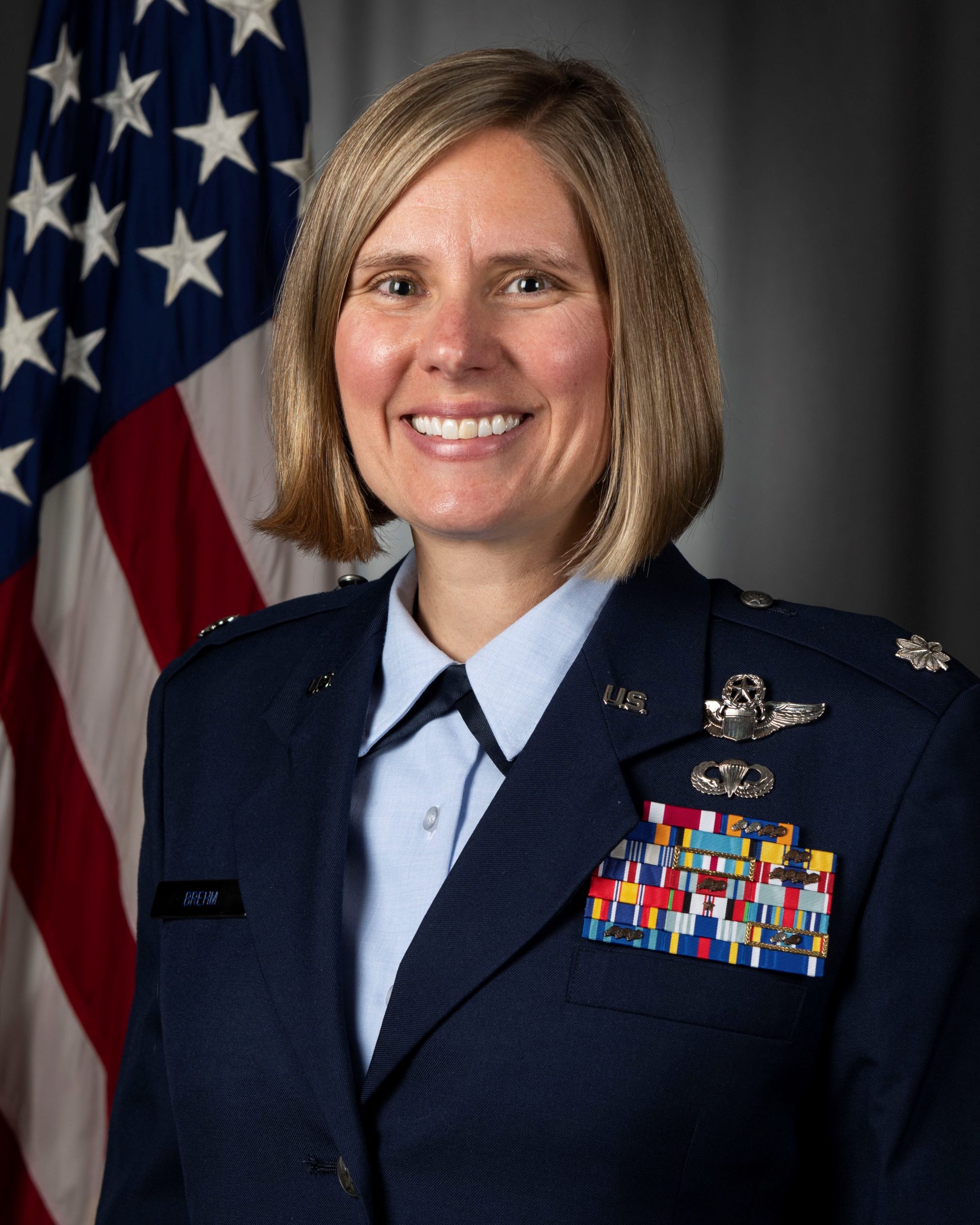
Col Sarah Brehm
Background: Col Brehm commissioned into the Air Force upon graduation from the United States Air Force Academy in 2004. After pilot training she flew distinguished visitor transportation missions in the C-21A based out of Andrews AFB.
Col Sarah Brehm was an Air Force Senior Developmental Education Fellow assigned to Project Everest for academic year 2022-2023.
Background: Col Brehm commissioned into the Air Force upon graduation from the United States Air Force Academy in 2004. After pilot training she flew distinguished visitor transportation missions in the C-21A based out of Andrews AFB. She then served in U-28A flying squadrons at Hurlburt Field and Cannon AFB as part of Air Force Special Operations Command. From there, Col Brehm attended the Air Command and Staff College and the School of Advanced Air and Space Studies at Maxwell AFB. Next, she served as the commander of the 34th Special Operations Squadron at Hurlburt Field. She has more than 4,000 flight hours including over 1,800 hours of combat time.
Academic and Professional Titles: Col Brehm received her Bachelor’s Degree in Political Science and Foreign Area Studies from the United States Air Force Academy. She holds a Master of Science Degree in Leadership and Business Ethics from Duquesne University, a Master of Arts Degree in Military Operational Art and Science from the Air Command and Staff College at Air University, and a Master of Philosophy Degree in Military Strategy from the School of Advanced Air and Space Studies at Air University.
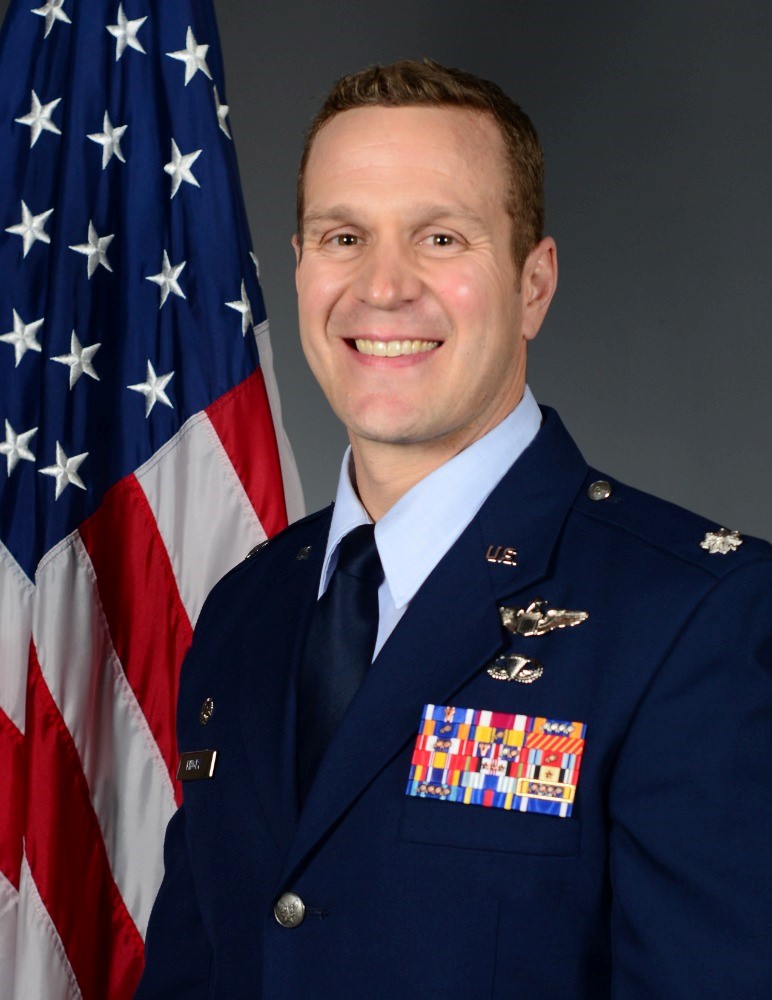
Lt Col Michael Kingry
Background: Lieutenant Colonel Kingry received his commission from the United States Air Force Academy in June 2004. His service includes operational assignments as an instructor pilot flying the HH-60G in Air Combat Command, Pacific Air Forces and United States Air Forces in Europe and Air Forces Africa.
Lt Col Michael Kingry was an Air Force Senior Developmental Education Fellow assigned to Project Everest for academic year 2022-2023. Prior to this he served as the Commander, 56th Rescue Squadron, Aviano Air Base, Italy. He commanded European Command’s only rotary-wing Combat Search and Rescue unit, consisting of 56 personnel across 5 AFSCs and 5 helicopters.
Background: Lieutenant Colonel Kingry received his commission from the United States Air Force Academy in June 2004. His service includes operational assignments as an instructor pilot flying the HH-60G in Air Combat Command, Pacific Air Forces and United States Air Forces in Europe and Air Forces Africa. He also served as an instructor pilot at the United States Air Force Weapons School, Nellis Air Force Base, Nevada and completed the Air Force Legislative Fellowship on Capitol Hill prior to his service as Director of Operations for the 56th Rescue Squadron. He is a command pilot with over 2,300 total hours and 660 combat hours. He has accomplished combat deployments to Iraq, Afghanistan, and Jordan in support of OPERATION IRAQI FREEDOM, OPERATION ENDURING FREEDOM, and OPERATION INHERENT RESOLVE.
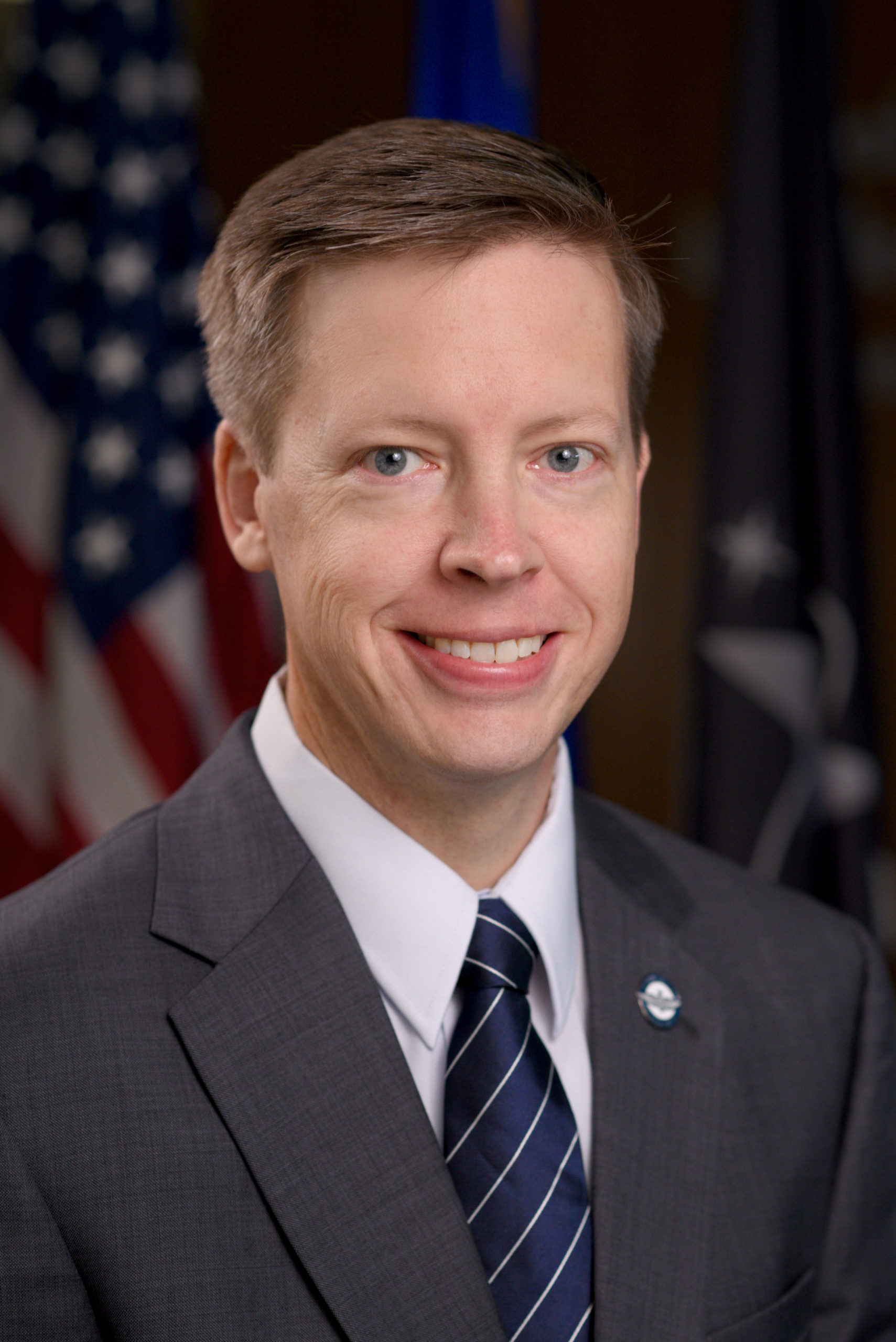
Lt Col Joshua Holaday
Background: Lt Col Holaday commissioned into the Air Force from the Reserve Officer Training Corps at the University of Virginia in 2003. After pilot training he served in operational C-17 squadrons at Charleston and Dover, and graduated from the US Air Force Weapons School in 2011.
Lt Col Josh “Doc” Holaday was an Air Force Senior Developmental Education Fellow assigned to Project Everest for academic year 2021-2022.
Background: Lt Col Holaday commissioned into the Air Force from the Reserve Officer Training Corps at the University of Virginia in 2003. After pilot training he served in operational C-17 squadrons at Charleston and Dover, and graduated from the US Air Force Weapons School in 2011. From there, Doc served on the Air Mobility Command staff before attending the Command and General Staff College at Fort Leavenworth and the School of Advanced Air and Space Studies at Maxwell AFB. Next he served in the J5 at the Indo-Pacific Command in the Southeast Asia Contingency Plans branch. Finally, he served as the 15th Wing’s Chief of Safety before taking command of the 535th Airlift Squadron in 2019. Doc has more than 3,000 hours in the C-17A, including 1,250 hours of combat time.
Academic and Professional Titles: Doc received his Bachelor’s Degree in Foreign Affairs from the University of Virginia. He holds a Master’s Degree in Administrative Leadership from the University of Oklahoma and has a Master of Philosophy Degree in Military Strategy from the School of Advanced Air and Space Studies at Air University.
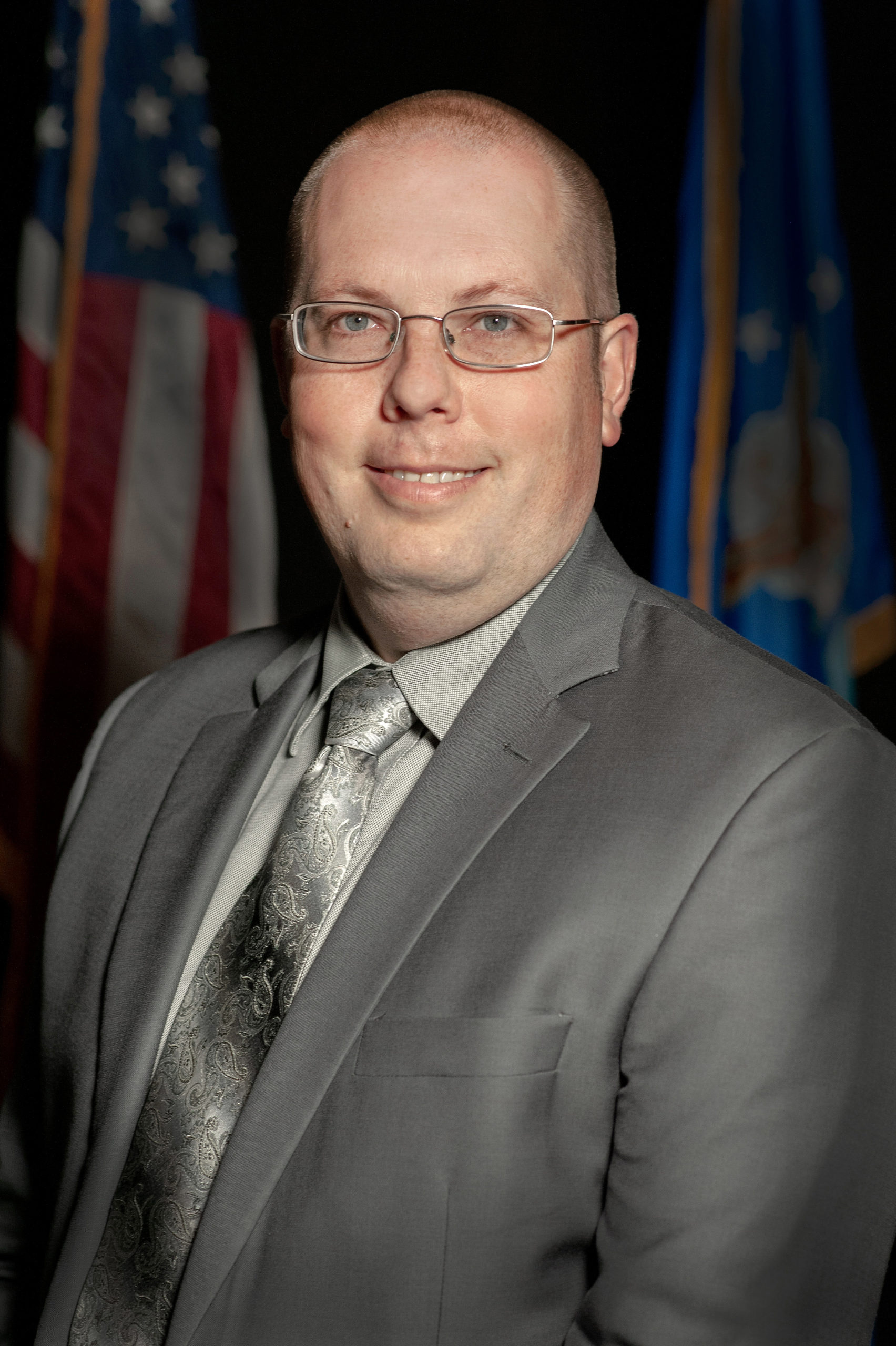
Lt Col Ryan “Ralphie” Ellis
Background: Ralphie received his commission in 2003 through the Air Force Reserve Officer Training Corps Detachment 060 while attending Harvey Mudd College. After receiving his Navigator rating in the fall of 2004, he qualified as a mission crew commander on the EC-130H COMPASS CALL at Davis-Monthan Air Force Base.
Lt Col Ryan “Ralphie” Ellis was an Air Force Senior Developmental Education Fellow assigned to Project Everest for academic year 2021-2022.
Background: Ralphie received his commission in 2003 through the Air Force Reserve Officer Training Corps Detachment 060 while attending Harvey Mudd College. After receiving his Navigator rating in the fall of 2004, he qualified as a mission crew commander on the EC-130H COMPASS CALL at Davis-Monthan Air Force Base. Lt Col Ellis went on to graduate and instruct at the US Air Force Weapons School, teaching advanced warfighting techniques and operational concepts. From there he was selected to attend Air Command and Staff College at Maxwell AFB and then moved to the School of Advanced Military Studies at Fort Leavenworth. Following his studies, Ralphie served on the Headquarters Air Force staff in A3K, also known as Checkmate, focusing on strategy and operations in the Indo-Pacific region. More recently, Ralphie served as the EC-130H formal training unit director of operations, as well the 41 Expeditionary Electronic Combat Squadron commander in Afghanistan. Finally, Lt Col Ellis took command of the 755 Operations Support Squadron in the summer of 2019. He has over 1,800 hours in the EC-130H, including 1,000 hours of combat time.
Academic and Professional Titles: Ralphie received his Bachelor’s of Science in Engineering from Harvey Mudd College. He holds master’s degrees in American Military History from American Military University, Military Operational Art and Science from Air University, and Military Art and Science from the Command and General Staff College.
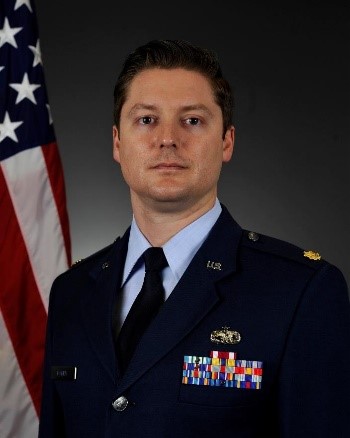
Maj Broderick Morris
Background: Maj Morris commissioned into the Air Force from the United States Air Force Academy in 2010. As a Logistics Readiness Officer, he has held various leadership roles within Logistics Readiness and Aerial Port Squadrons and spent two years in a broadening assignment with the Defense Logistics Agency.
Maj Broderick Morris was an Air Force Intermediate Developmental Education Fellow assigned to Mitchell Institute for academic year 2021-2022.
Background: Maj Morris commissioned into the Air Force from the United States Air Force Academy in 2010. As a Logistics Readiness Officer, he has held various leadership roles within Logistics Readiness and Aerial Port Squadrons and spent two years in a broadening assignment with the Defense Logistics Agency. Prior to this current fellowship, Maj Morris was assigned to Headquarters United States Air Forces in Europe and Air Forces Africa, where he planned, coordinated and executed events in direct support of COMUSAFE-AFAFRICA. Maj Morris is a distinguished graduate of the Logistics Readiness Officer Basic Course, Air and Space Basic Course, and Squadron Officer School.
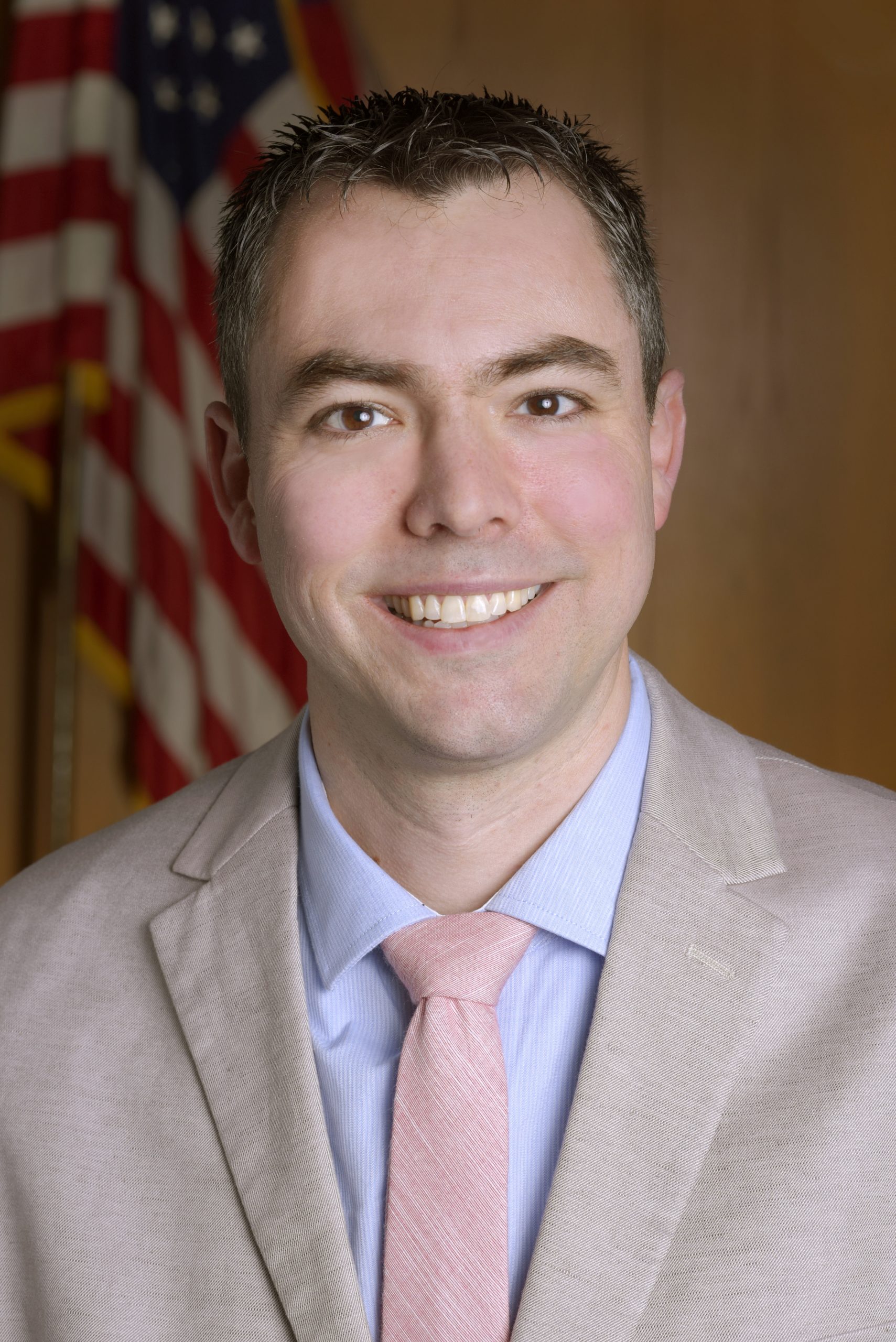
Maj Christopher Olsen
Background: Major Olsen commissioned through ROTC in 2008. His first assignment was to the National Air and Space Intelligence Center (NASIC) at Wright-Patterson AFB, Ohio, where he performed technical intelligence analysis on space systems. In 2011 he began duty at the National Security Agency (NSA) while assigned to the 34thIntelligence Squadron, Ft Meade, Maryland.
Maj Christopher Olsen was an Air Force Strategic Policy Fellow assigned to the Mitchell Institute for Aerospace Studies.
Background: Major Olsen commissioned through ROTC in 2008. His first assignment was to the National Air and Space Intelligence Center (NASIC) at Wright-Patterson AFB, Ohio, where he performed technical intelligence analysis on space systems. In 2011 he began duty at the National Security Agency (NSA) while assigned to the 34thIntelligence Squadron, Ft Meade, Maryland. There, he was dual-hatted as both a flight commander and chief of the Nuclear Communications Solutions branch. His last year at Ft Meade was spent on staff at the 707th Intelligence, Surveillance, and Reconnaissance Group as chief of plans and programs. During his time at Ft Meade, he spent six months deployed in support of Operation Enduring Freedom at Camp Leatherneck, Afghanistan, serving as the detachment Officer-in-Charge (OIC) for the 777th Expeditionary Prime Base Engineering Expeditionary Force (Prime BEEF) squadron. He began studies for a PhD in Aeronautical Engineering at the Air Force Institute of Technology, Wright-Patterson AFB, Ohio in 2015 with a focus on optimization and optimal control theory. Upon graduation in 2018, he was assigned to the Aerospace Systems Directorate at the Air Force Research Laboratory, Wright-Patterson AFB, Ohio. While at AFRL, Maj Olsen split time between leadership positions and developing autonomy behaviors and system requirements for what would eventually become the Air Force’s Skyborg Vanguard program. In 2019 he was selected to serve as the executive officer to the AFRL commander, before starting his fellowship at the Mitchell Institute in 2020.
Areas of Focus: Autonomy, Manned-Unmanned Teaming (MUM-T), optimization/optimal control, science and technology program management, and technical intelligence analysis.
Academic and professional titles: Major Olsen has a Bachelor of Science in Mechanical Engineering from Texas A&M University (2008), a Master of Science in Systems Engineering from the Air Force Institute of Technology (2014), and a Doctor of Philosophy in Aeronautical Engineering from the Air Force Institute of Technology (2018).
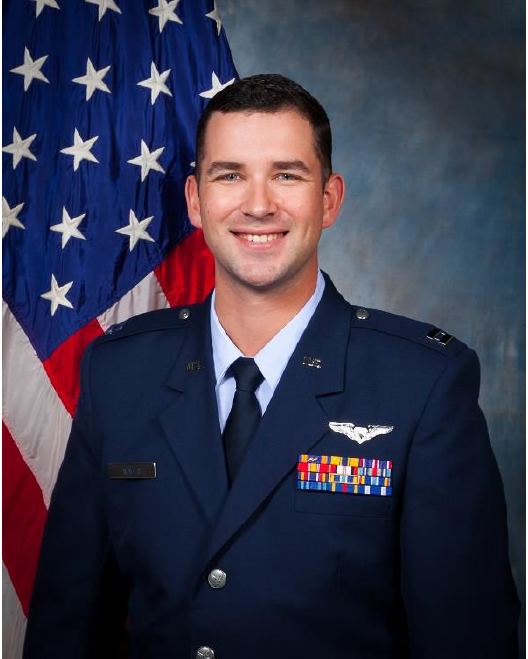
Maj Alex M. Wallis
Background: During his career he has held a variety of leadership positions including Chief of Air Battle Management Assignments, Chief of Multi-domain Operations Officer Assignments, Flight Command, Chief of Weapons and Tactics, Mission Planning Cell Chief, Chief of Electronic Support Team, Deputy Chief of Tactics, Chief of Electronic Combat and Electronic Combat Evaluator and Instructor.
Maj Alex M. Wallis was an Air Force Strategic Policy Fellow with The Mitchell Institute of Aerospace Studies, Arlington Virginia.
Background: During his career he has held a variety of leadership positions including Chief of Air Battle Management Assignments, Chief of Multi-domain Operations Officer Assignments, Flight Command, Chief of Weapons and Tactics, Mission Planning Cell Chief, Chief of Electronic Support Team, Deputy Chief of Tactics, Chief of Electronic Combat and Electronic Combat Evaluator and Instructor. Prior to his current assignment he was the Chief of Air Battle Manager and Multi-domain Officer Assignments. In this capacity, he managed a portfolio of 1270 Air Battle Managers across three C2 Weapon Systems and 75 13O officers in Air Operation Centers across the CAF. As a Senior Air Battle Manager, his operational flying experience includes missions supporting Operations Enduring Freedom, Combined Defense of the Arabian Gulf and Operation Odyssey Resolve. His deployed efforts helped support the International Security Assistance Force, Gulf State Security Council and PACAF.
Academic and professional titles: Major Wallis received his commission through ROTC
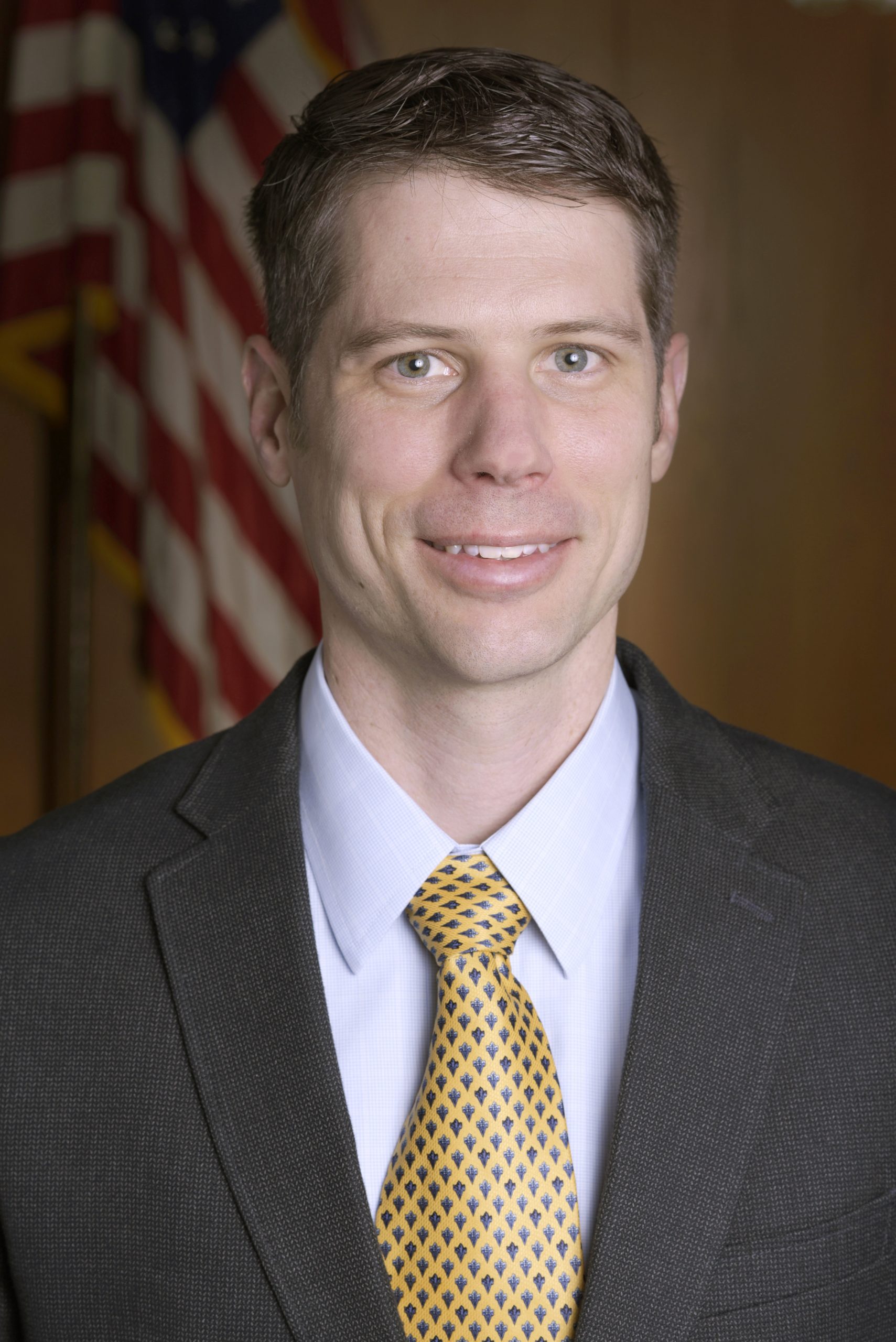
Lt Col Mark Kimball
Background: Lt Col Kimball earned his commission in 2002 from the Air Force Reserve Officer Training Corps at the University of Maryland. His U.S. Air Force career has included multiple assignments as a bomber pilot in the B-1B.
Lt Col Mark Kimball was an Air Force Senior Developmental Education Fellow assigned to Project Everest for Academic Year 2020–2021.
Background: Lt Col Kimball earned his commission in 2002 from the Air Force Reserve Officer Training Corps at the University of Maryland. His U.S. Air Force career has included multiple assignments as a bomber pilot in the B-1B. He graduated from the USAF Weapons School in 2010, has flown more than 2,500 hours, including more than 1,200 in combat, and served as an instructor in each of the three active-duty B-1 combat squadrons as well as at the B-1 formal training unit. Prior to his fellowship, he completed a four-year assignment at Ellsworth AFB in South Dakota, where he deployed to the Andersen AFB supporting Pacific Air Forces’ continuous bomber presence in Indo-Pacific as the director of operations of the 37th Bomb Squadron. He took command of the squadron after returning from that deployment, and later served as a deputy commander of the 28th Operations Group. Lt Col Kimball attended the College of Naval Command and Staff at the US Naval War College in Newport, RI for his intermediate-level professional military education. While attending CNCS, he was selected for the Maritime Advanced Warfighting School, a CNO-directed thirteen-month advanced studies group focusing on operational and theater-strategic planning, decision making, and leadership considerations for component and joint force commanders.
Academic and professional titles: Lt Col Kimball has a Bachelor of Science in Aerospace Engineering from the University of Maryland, a Master of Arts from Air University in Military and Operational Science, and a Master of Arts from the Naval War College in Defense and Strategic Studies.
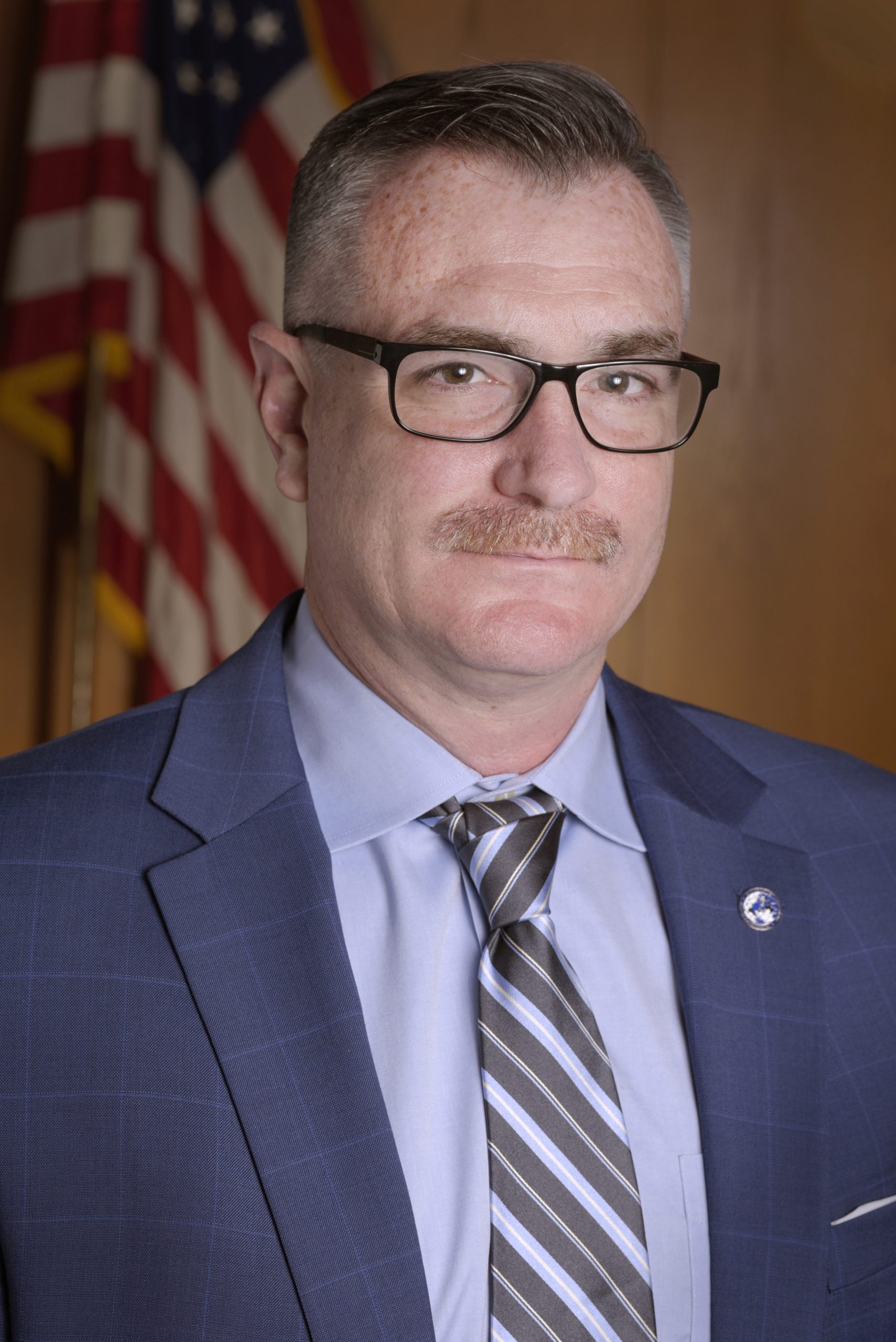
Col Nelson Rouleau
Background: Col Rouleau is a risk-taking leader and strategist with 26 years of combined experience in combat, strategy, disruptive innovation, design thinking, organizational development, consulting, and coaching.
Col Nelson Rouleau was an Air Force Senior Developmental Education Fellow assigned to Project Everest for Academic Year 2020–2021.
Background: Col Rouleau is a risk-taking leader and strategist with 26 years of combined experience in combat, strategy, disruptive innovation, design thinking, organizational development, consulting, and coaching. He’s led and commanded military organizations at the senior manager and the vice president level. He has earned a reputation for challenging the status quo and quickly transforming organizational culture. His organizations give strong voices to mavericks and have a reputation for leading ridiculously, thinking radically, and designing with perspicacity. In turn, his teams have a history of illuminating solutions to long-standing institutional problems with entrenched positions. Col Rouleau has grown and matured a matrixed network of young leaders and disruptive thinkers capable of leading and ensuring competitive advantage long into the future. He is a founding member of Project Everest, a strategy design and facilitation team that specializes in infusing creativity into dull strategy development methods and using design-inspired facilitation to help teams unlock their creative potential. He has helped teams from the U.S. Air Force, the U.S. Marine Corps, U.S. Space Command, the U.S. Air Force Academy, and the Mitchell Institute. Col Rouleau is the founder of The Bigfoot Experience: Living and Leading, by Design. Inspired by human centered design and motivated through his experiences in leading in combat, authentic leadership development, disruptive innovation, and organization development, the Bigfoot Experience guides large organizations through periods of change and helps discover novel solutions to vexing problems. Through the experience, C-Suite leaders and young high potential leaders are coached to live and lead authentic lives and navigate life’s transitions.
Areas of Focus: Col Rouleau’s mission is three-fold: first, to lead and think far ahead of a rapidly changing world. Second, to guide organizations and teams through periods of change, have tough conversations, and assist executive leaders to live and lead their most authentic lives. Lastly, to develop young curious minds capable of solving difficult national problems through a kaleidoscope of ideas and experiences. He has helped author and communicate strategy at the highest levels of the U.S. government. He was a part of the team that authored the Pacific Air Force Strategy in 2014. In June of 2021, he will serve as the Senior Air Force Strategist in the Under Secretary of Defense’s Policy and Force Development Office where he will help draft the U.S. National Defense Strategy.
Academic and Professional titles: Col Rouleau has a certificate in Management Excellence from Harvard Business School, certificate in Organizational Consulting & Change Leadership from Georgetown University’s Institute for Transformational Leadership (July 2021) as well as master’s degrees in counseling and military strategy. He also serves as an adjunct instructor teaching command leadership and airpower history for the U.S. Air Force’s Air Command and Staff College.
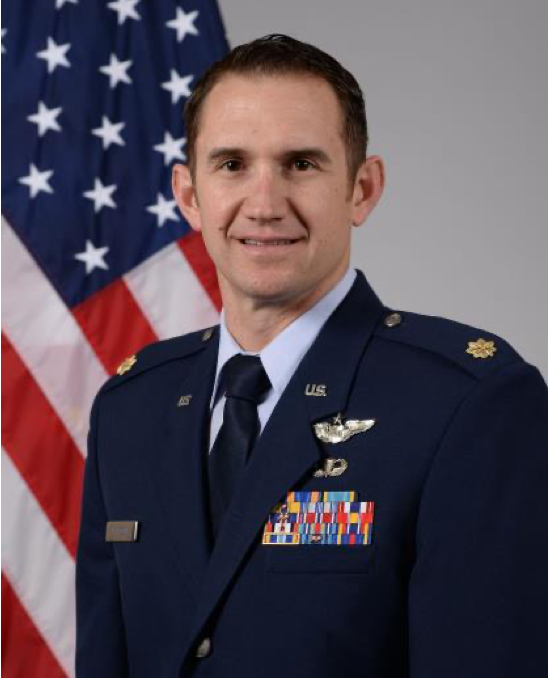
Major Tyler Marcotte
Major Tyler Marcotte serves as Chief, Wing Executive Officer and C-40C Evaluator Pilot, 375th Air Mobility Wing, Scott Air Force Base, Illinois. As the executive advisor to the Wing Commander, Maj Marcotte disseminates policy decisions and taskings to four groups, twenty squadrons, and 2,900 personnel. Additionally, he coordinates and manages all wing and higher headquarters correspondence, taskers, awards and decorations, and management issues regarding all wing personnel. Finally, he operates and commands executive airlift missions for senior military leaders, executive branch personnel, and Congressional members.
Background: Major Marcotte earned his commission through the United States Air Force Academy in May, 2006. Following graduation from pilot training at Laughlin AFB, Texas, Maj Marcotte remained at Laughlin as a T–1A First Assignment Instructor Pilot. Maj Marcotte then served as a C–5M Instructor and Evaluator Pilot in the 9th Airlift Squadron at Dover AFB, Delaware. During this assignment, he was a Flight Commander and the Wing C–5M Training Manager. Prior to his current assignment, he was the Assistant Operations Officer for the 54th Airlift Squadron, Scott AFB, Illinois.
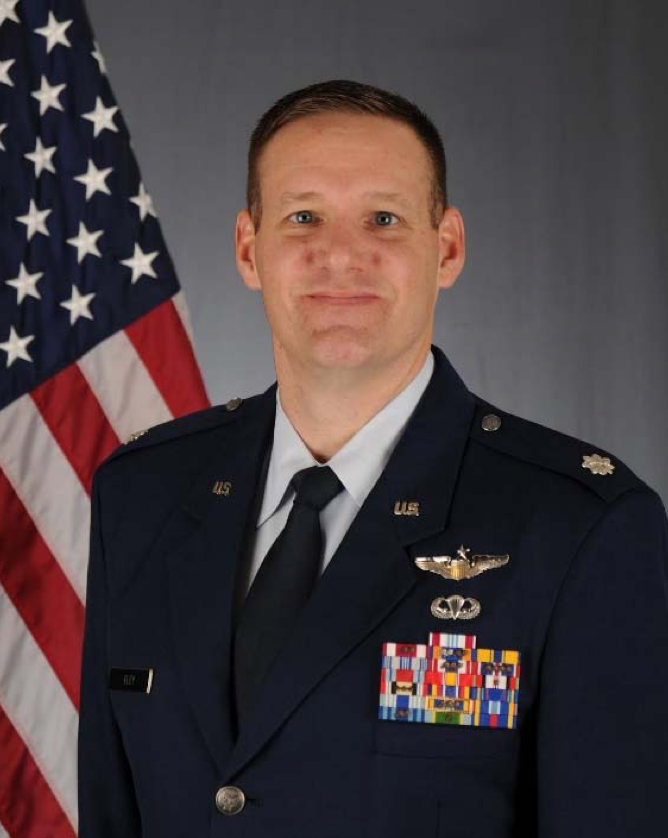
Lt Col Kevin Eley
Lt Col Kevin Eley is an Air Force Strategic Policy Fellow within the National Capital Region serving in the Mitchell Institute for Aerospace Studies. Prior to his selection as a Fellow, he was the Distribution Branch Chief for United States Transportation Command, Sustainment Division, where he developed, monitored, and adjusted the global logistics network to support distribution of sustainment, foreign military sales and humanitarian cargo within the defense transportation system.
Background: Lt Col Eley’s operational assignments include Assistant Director of Operations and Chief of Standardization and Evaluation for the 912th Air Refueling Squadron, Director of the Commander’s Action Group, 19th Air Wing, and evaluator pilot for the 34th Combat Training Squadron specializing in air mobility operations for the Joint Readiness Training Center and Green Flag exercises. Lieutenant Colonel Eley has deployed seven times in support of Operations Enduring Freedom, Iraqi Freedom and the Joint Interagency Task Force South. He served as the Aide-de-Camp to the 18th Air Force Commander, a Presidential Advanced agent, and held executive officer positions at the group and squadron level. Lieutenant Colonel Eley is a distinguished graduate of the Corps of Cadets at Virginia Polytechnic Institute and State University with a degree in Business Information Technology. He holds a Masters Degree in Business Administration from the University of Arkansas at Little Rock and earned his pilot wings at Naval Air Station Corpus Christi, Texas.
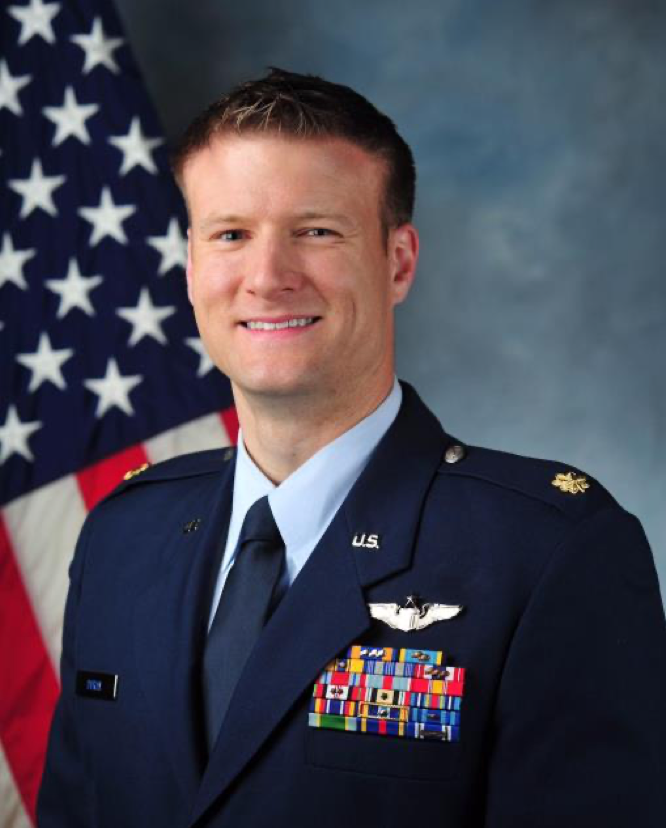
Lt Col John Duray
Lt Col John Duray is an MQ-9 Evaluator Pilot and Assistant Director of Operations, 3rd Special Operations Squadron, Cannon Air Force Base, New Mexico. He commands an MQ-9 Reaper crew in direct combat support of our nation’s elite Special Operations Forces. Additionally, he is entrusted to evaluate aircrew members’ ability to execute Joint Force Air Component Commander priority missions requiring persistent armed reconnaissance. As an Assistant Director of Operations, Major Duray is directly responsible for the successful execution of combat operations for AFSOC’s largest MQ-9 squadron, overseeing seven combat lines conducting 24/7/365 operations in four separate geographic regions.
Background: Major Duray graduated from Duke University in 2006 where he commissioned as a Distinguished Graduate through the Reserve Officers’ Training Corps. He went on to serve as a U–28 Instructor Pilot and Flight Commander for the 319th Special Operations Squadron. He has led an expeditionary special operations flying squadron as director of operations and served as an executive officer at both the squadron and group levels. Prior to his current position, the major was the Chief of Standards and Evaluations, 3rd Special Operations Squadron, Cannon AFB, NM.
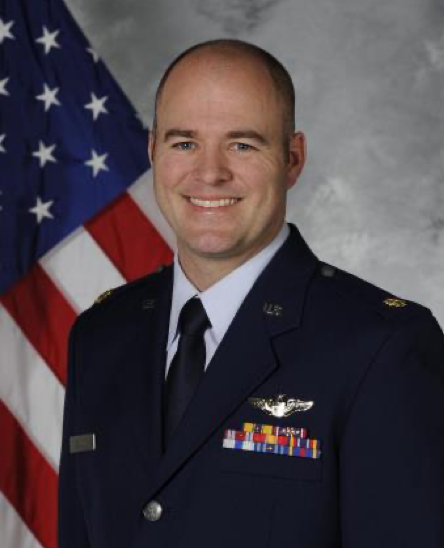
Major Andrew Stolee
Major Andrew T. Stolee is the F-22A Chief Instructor Pilot, 433rd Weapons Squadron, USAF Weapons School, 57th Wing, Nellis Air Force Base, Nevada. He is in charge of the design and execution of the F-22A Weapons Instructor Course syllabus, producing Tactical Experts to the Combat Air Forces.
Background: Major Stolee entered the Air Force after graduating from the USAF Academy in 2004. He attended Specialized Undergraduate Pilot Training at Laughlin AFB, TX, and F-15C initial training at Kingsley Field, OR. Major Stolee’s operational assignments include the 60th Fighter Squadron at Eglin AFB, FL, the 44th Fighter Squadron, Kadena AB, Japan, the 422nd Test & Evaluation Squadron and 433rd Weapons Squadron, Nellis AFB, NV. He transitioned from the 422nd Test & Evaluation Squadron Chief of Weapons and Tactics to the F-22A to serve as a USAF Weapons School Instructor.
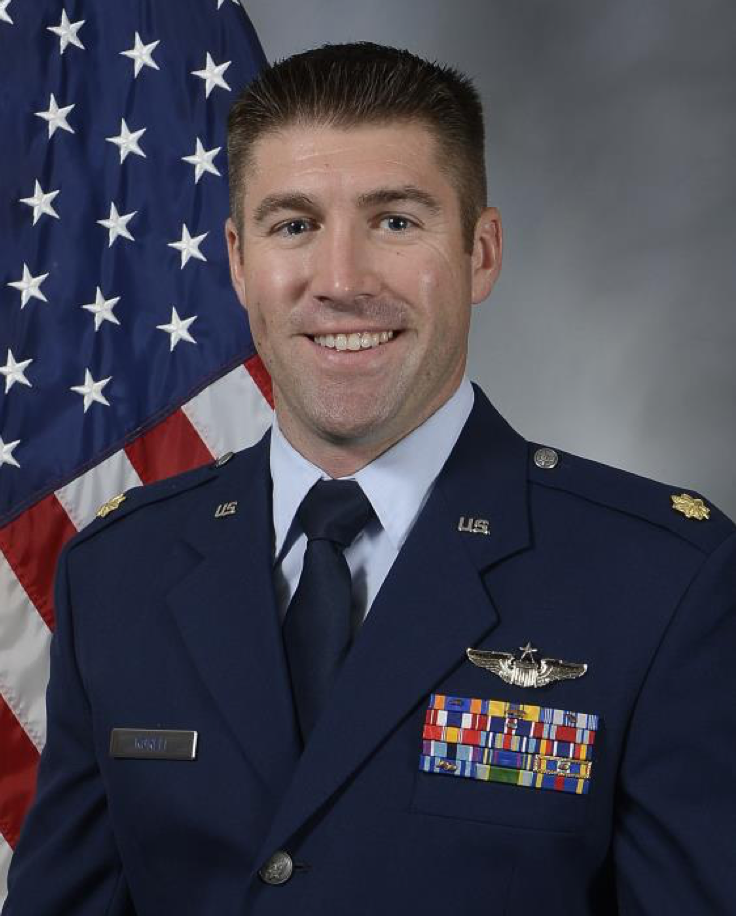
Major Scott Korell
Major Scott Korell is the Chief of Command Post and KC-135R/T Instructor Pilot, 6th Air Mobility Wing, MacDill Air Force Base, Florida. As Chief of Command Post, he leads more than 30 total force command post controllers and is responsible for the command and control of over 3,000 wing personnel, and base property and capital assets totaling more than $2.8 billion. The wing’s mission is to conduct rapid global mobility by providing worldwide aerial refueling support to Combatant Commanders and to provide installation support to Headquarters U.S Central Command, Headquarters U.S. Special Operations Command, and 36 other mission partners that call MacDill home. The MacDill Command Post executes more than 3,200 aircraft missions and 3,900 flight hours in support of 2,200 aerial refueling receivers each year.
Background: Major Korell has been an Executive Officer at the wing and group levels, and a squadron flight commander. Prior to his current assignment, he was a Wing Executive Officer and Evaluator Aircraft Commander in the C-5M Galaxy aircraft. In this capacity, he was the principal executive assistant to the Wing Commander, directly responsible for the wing’s fulfillment of all higher headquarter-directed tasks and the administrative support of 4,500 wing members. He obtained his commission from the U.S. Air Force Academy in 2004 and was a top-ten graduate within his respective field of study. In 2005, he completed Undergraduate Pilot training at Columbus AFB, Mississippi and his operational experience includes various Air Force mission sets to include, strategic and tactical airlift, aeromedical evacuation, and aerial refueling. Additionally, in 2008 Major Korell deployed to the Air Mobility Division, 609th Combined Air Operations Center. In garrison, he was responsible for the execution of more than 7,000 C-130 intra-theater airlift sorties, transporting 151,000 passengers and 12,500 tons of cargo in support
of Operations Iraqi Freedom and Enduring Freedom.
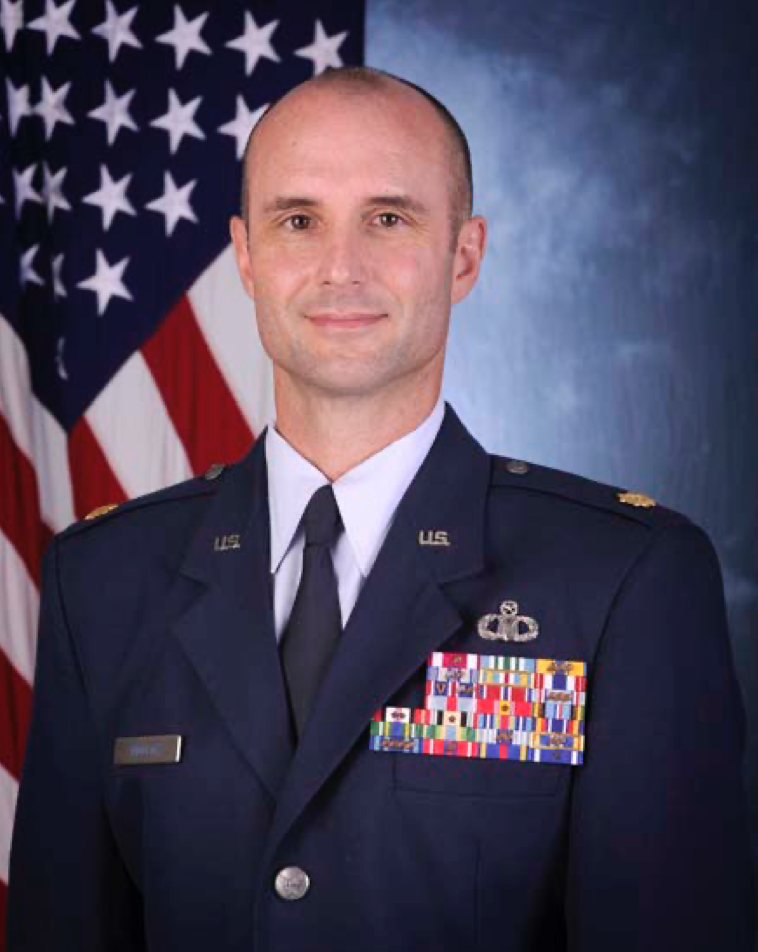
Major Derek Molloy
Major Derek Molloy is the Airfield Operations Flight Commander at Tyndall Air Force Base Florida where he leads 117 air traffic controllers and airfield management operations personnel responsible for 45,000 square miles of airspace supporting 125,000 annual aircraft movements.
Background: Major Molloy graduated from the United States Air Force Officer Training School in December 2002. He was recognized as the 2006 USAF airfield operations officer of the year and was a Distinguished Graduate of Squadron Officer’s School in 2008. Previously, Major Molloy oversaw air traffic control and airfield support at Dyess AFB and Hurlburt Field. In addition to his core airfield operations expertise, Major Molloy has also performed duties as part of the Air Combat Command Inspector General’s staff and led the Commander, Air Combat Command’s conference and speechwriting teams. Major Molloy has deployed six times since his commission, performing various duties from operating an austere airfield in support of operational detachment alpha missions in western Afghanistan to serving two tours on the NATO Air Command staff.
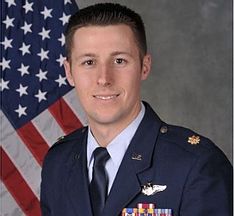
Major David Cochran
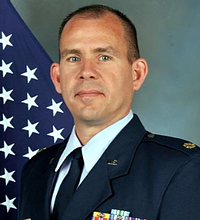
Major Stephen Bonin
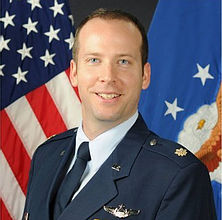
Major Scott Gunn
Careers
The Mitchell Institute for Aerospace Studies is an independent, nonpartisan research organization based in Arlington, VA that was established to provide fact-based policy options that better empower our nation’s leaders by educating on airpower and spacepower.
The Mitchell Institute is an equal opportunity employer committed to diversity, inclusion, and honoring the contributions of our country’s veterans. We offer opportunities for people at all levels of their careers, from recent graduates interested in pursuing a career in national security to experienced professionals. If you do not currently see a position open, you may still send resumes to mitchell@afa.org
Positions include:
Operations Staffers
Operations positions see to the day-to-day running of programs and events, as well as managing outreach and education efforts. Key skills: administrative expertise, social media prowess, project management skills, event planning and coordination experience, customer service experience, adaptability, and a strong interest in national security.
Research Analysts
Research analysts are the backbone of Mitchell’s ability to back up its events series and reports with meaningful data and analysis, as well as put together content that informs stakeholders and policy makers. Key skills: strong written and oral communication, demonstrated ability for research and analysis, good working knowledge of software tools to put together written, graphic, or other audio/visual content, educational and professional experience consistent with Mitchell’s subject matter expertise.
Fellows
Established subject matter experts with relevant operational or other working experience in the national security sphere. These are project leads on papers, analysis, public outreach, and other efforts. Key skills: experience working in DOD, congress, industry, or other national security organizations; strong written and oral communication skills; an understanding of the national security environment; and experience collaborating with stakeholders and executing non-profit business development.
Directors
Well-established subject matter experts with significant operational or other experience working in the national security sphere. These are program and project leaders, as well the main spokespersons for the Mitchell Institute. Key skills are similar to fellows, but require senior levels of experience. Directors have often held key positions at high levels of the national security enterprise during their career.
Research Analyst
The Mitchell Institute for Aerospace Studies Sr. Research Analyst executes in-depth research and analysis to inform decision makers and the public at large about future trends in the realm of national security through the aerospace lens. This position focuses on supporting project leaders through research, analysis, graphics creation, and research source summaries.
Find Out More
Senior Resident Fellow, Space Studies
The Mitchell Institute Senior Research Fellow, Space Studies, is responsible for leading and developing areas of research specific to the aerospace strategy, operational concepts, tactics, and technologies, providing executive leadership on Mitchell Institute strategy, priorities, and events, and maintaining a high profile with external partners and stakeholders.
Find Out More
Senior Resident Fellow, Airpower Studies
The Mitchell Institute Senior Resident Fellow, Airpower Studies, is responsible for leading and developing areas of research specific to the aerospace strategy, operational concepts, tactics, and technologies, providing executive leadership on Mitchell Institute strategy, priorities, and events, and maintaining a high profile with external partners and stakeholders. Apply
Find Out More